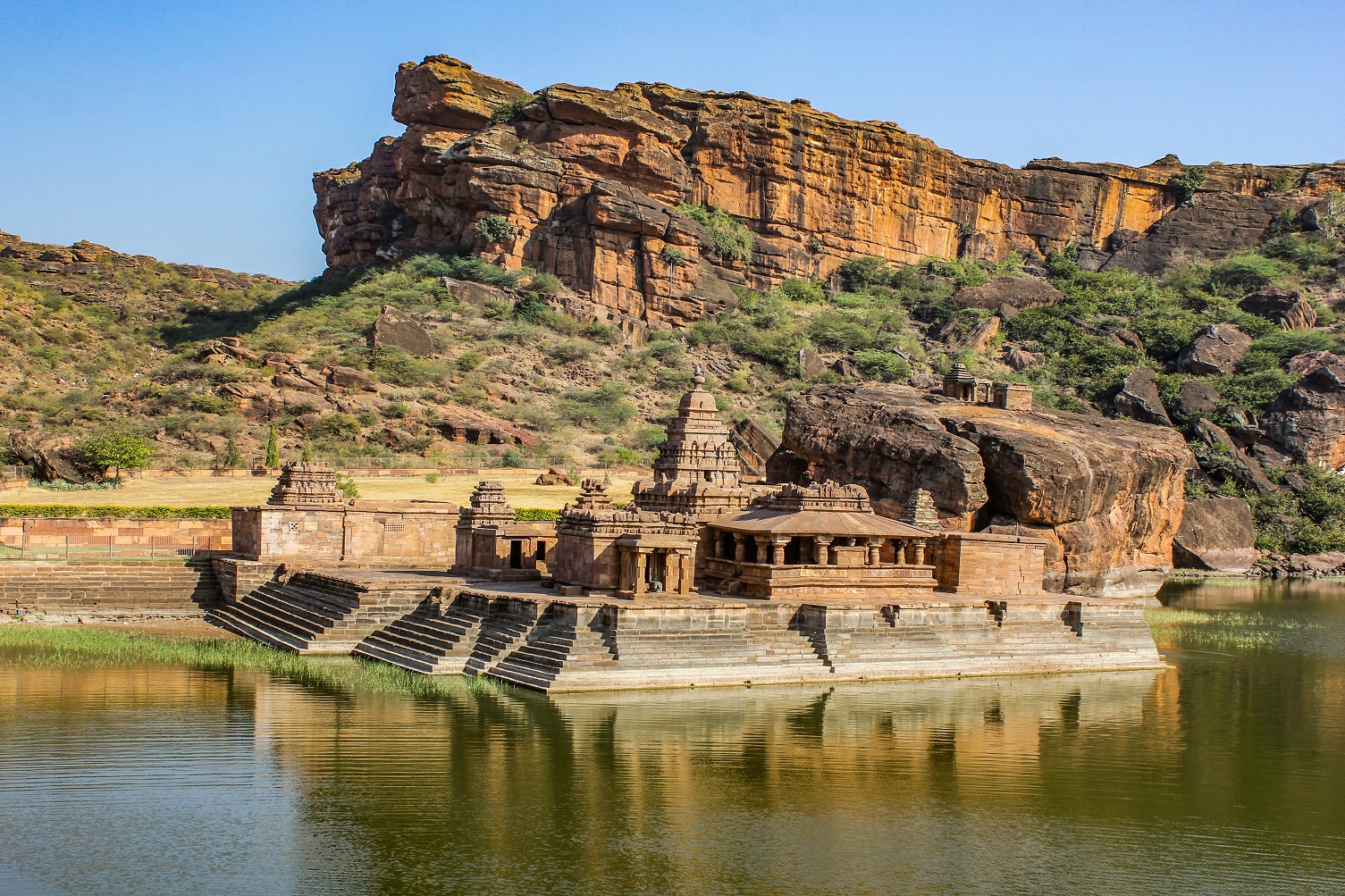History, heritage, art, craft, royalty and architecture have been timeless inspirations for travel. A prototypical parade through these heritage sites hearing the parroted paragraphs from a plodding tourist guide will deprive the wanderer of the wisdom beneath the veneer of these cult caves constructed in the golden era of Chulukya dynasty, that unravels some of the mysteries of creation, civilization and conjugal love.
Before we unravel these paradoxes, some practical details:
Best time to visit: Throughout the year
Getting here:
- Nearest International Airport: Bengaluru
- Nearest Domestic Airport: Hubli
- By road: 450 kms from Bengaluru ( 8.5 hours)
- By train: From Yesvantpur Junction, Bangalore to Badami (nearly takes 12 hours)
Recommended Stay: The Heritage Resort
Badami can be visited as a long weekend getaway. It can be clubbed with visit to nearby Heritage sites viz Hampi, Pattadakal and Aihole, making it a week long extravaganza.
History bytes in brief
Badami was a capital of Chalukyas who ruled during the 6th and 7th Century AD. The key highlights of Badami are:
- Cave temples. There are totally four caves of which the first cave is dedicated to Lord Shiva, second and third to Lord Vishnu and fouth cave to Jainism.
- Bhutanatha temple
- Badami Fort
- Badami Museum
All these attractions are walkable distance from The Heritage Resort or a local cab can be hired. All these attractions can be visited in a day at a minimum or this can turn in a philosophical escapade into a dense vegetation of metaphysical metaphors.
Let us walk through a photo story of bountiful Badami Caves, Bhutanatha temple and Badami Fort as it sets the stage for some profound reflections.
Photo story
Badami Caves
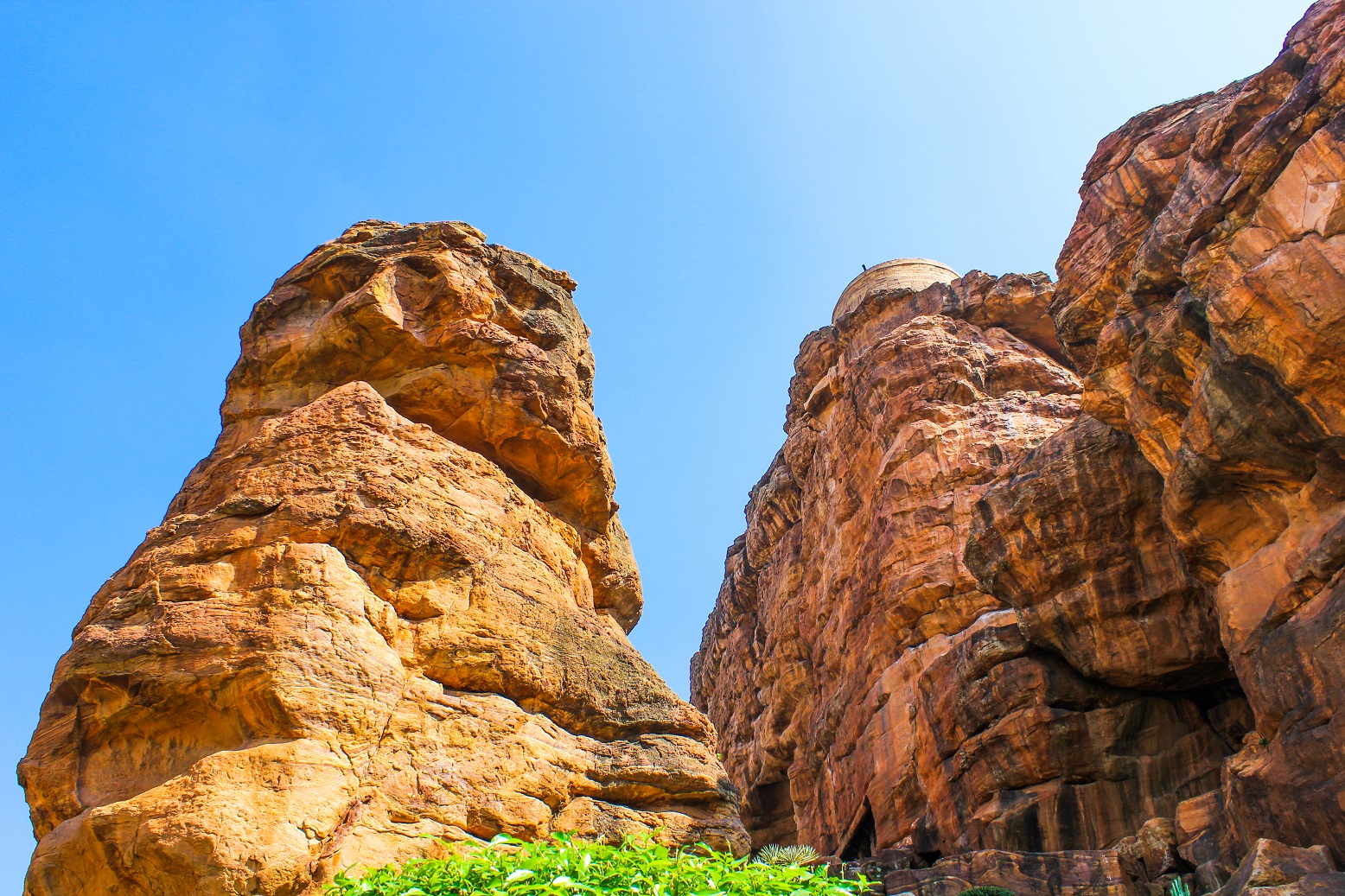

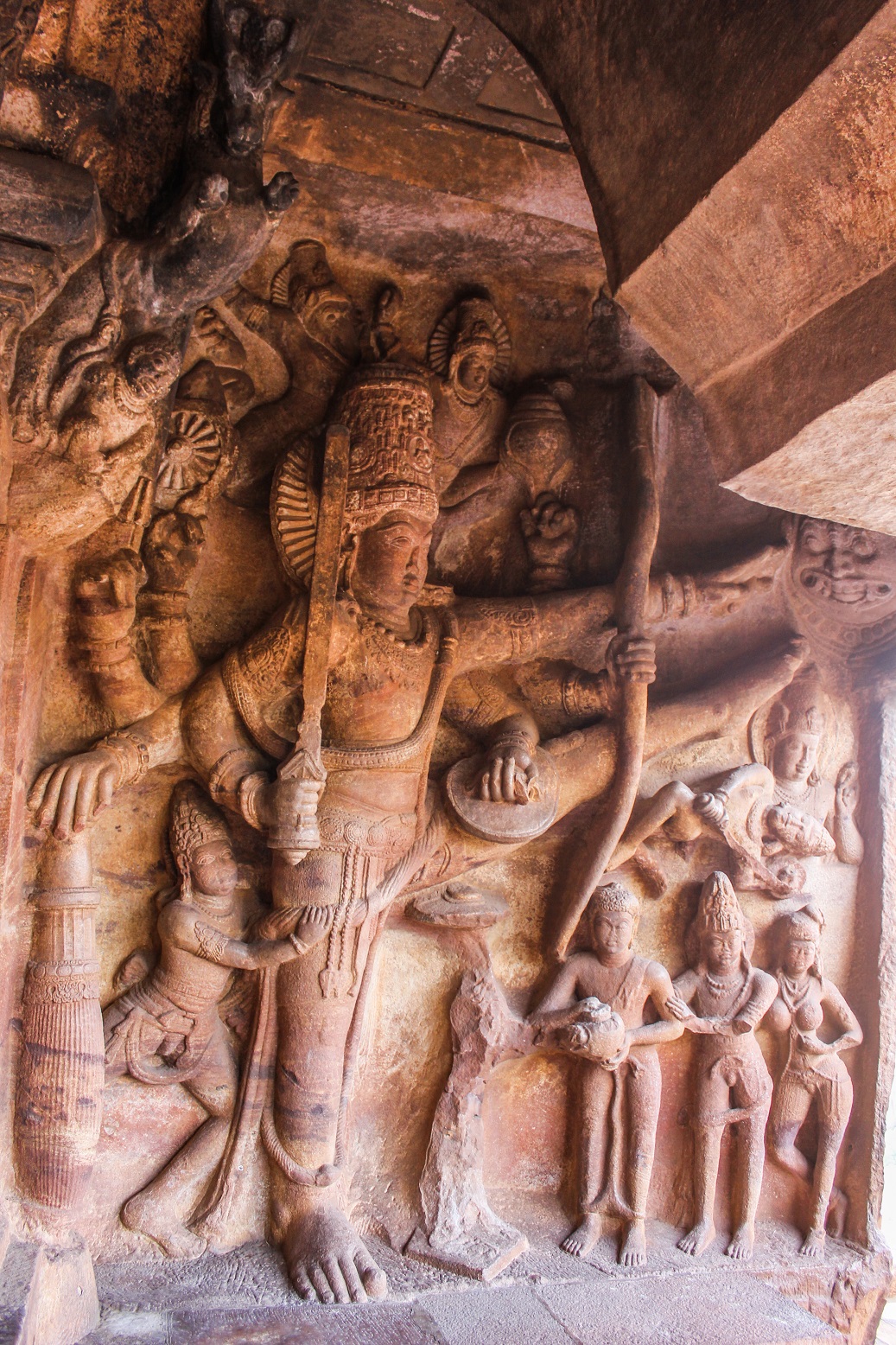
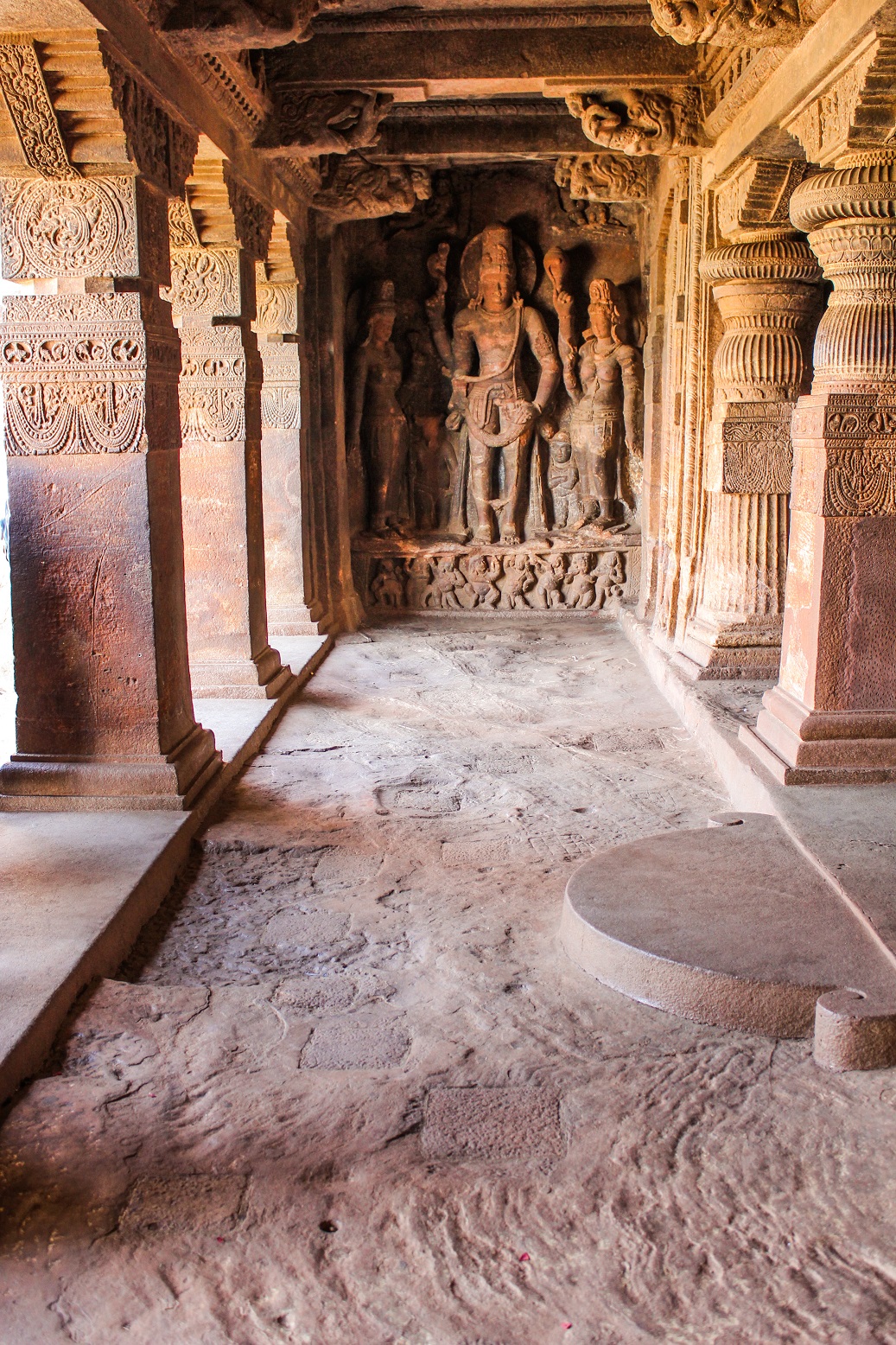
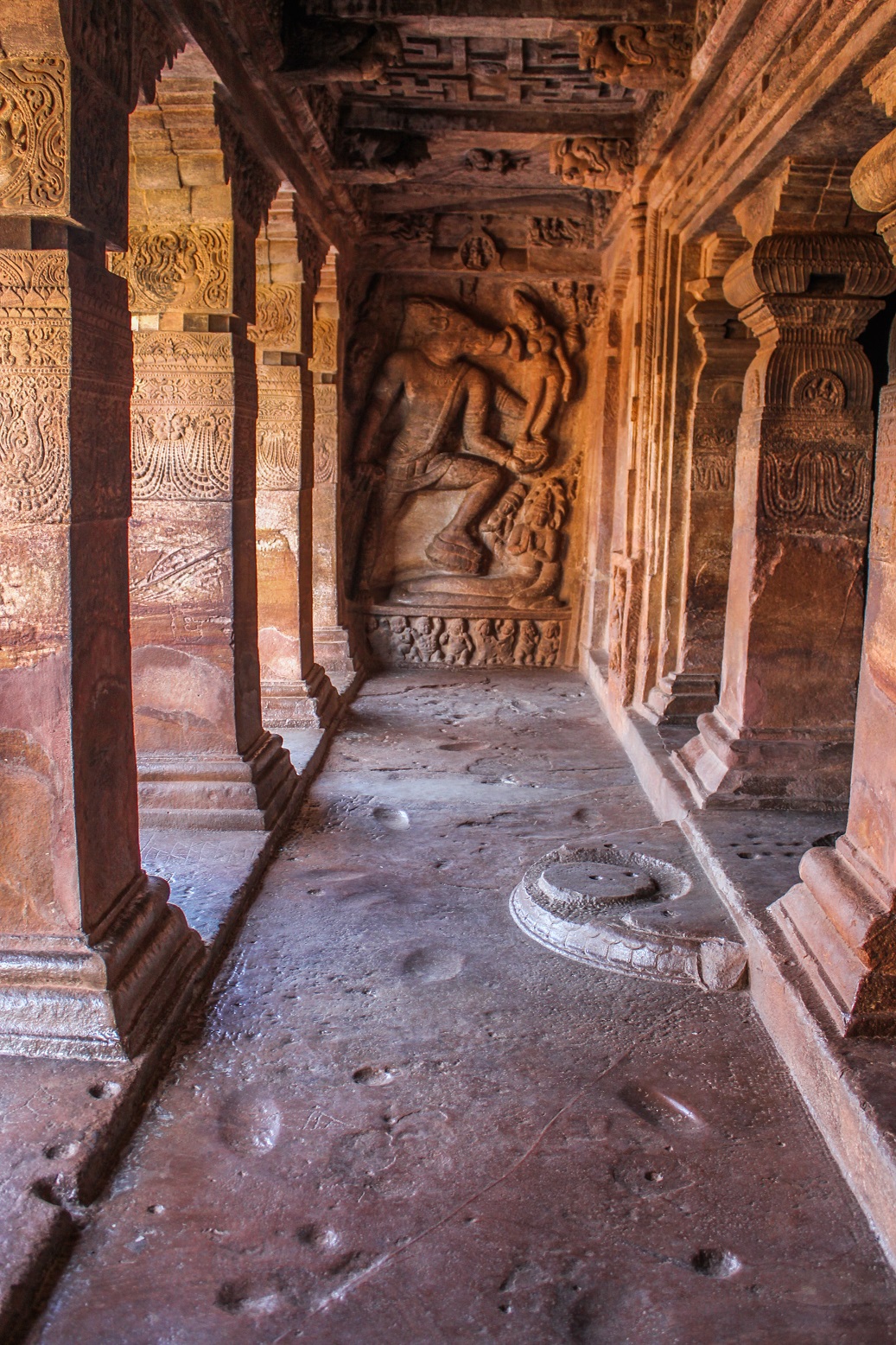
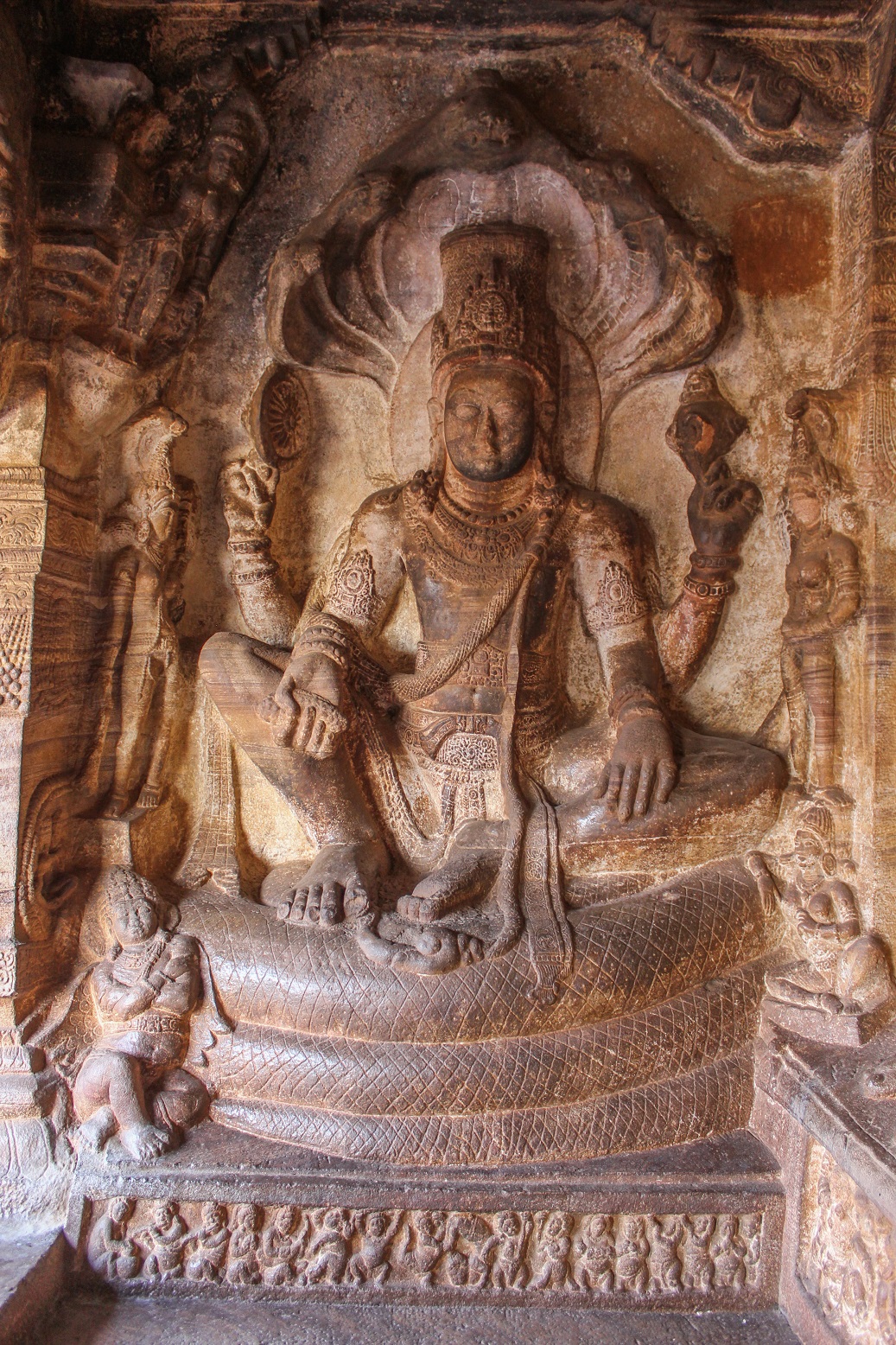
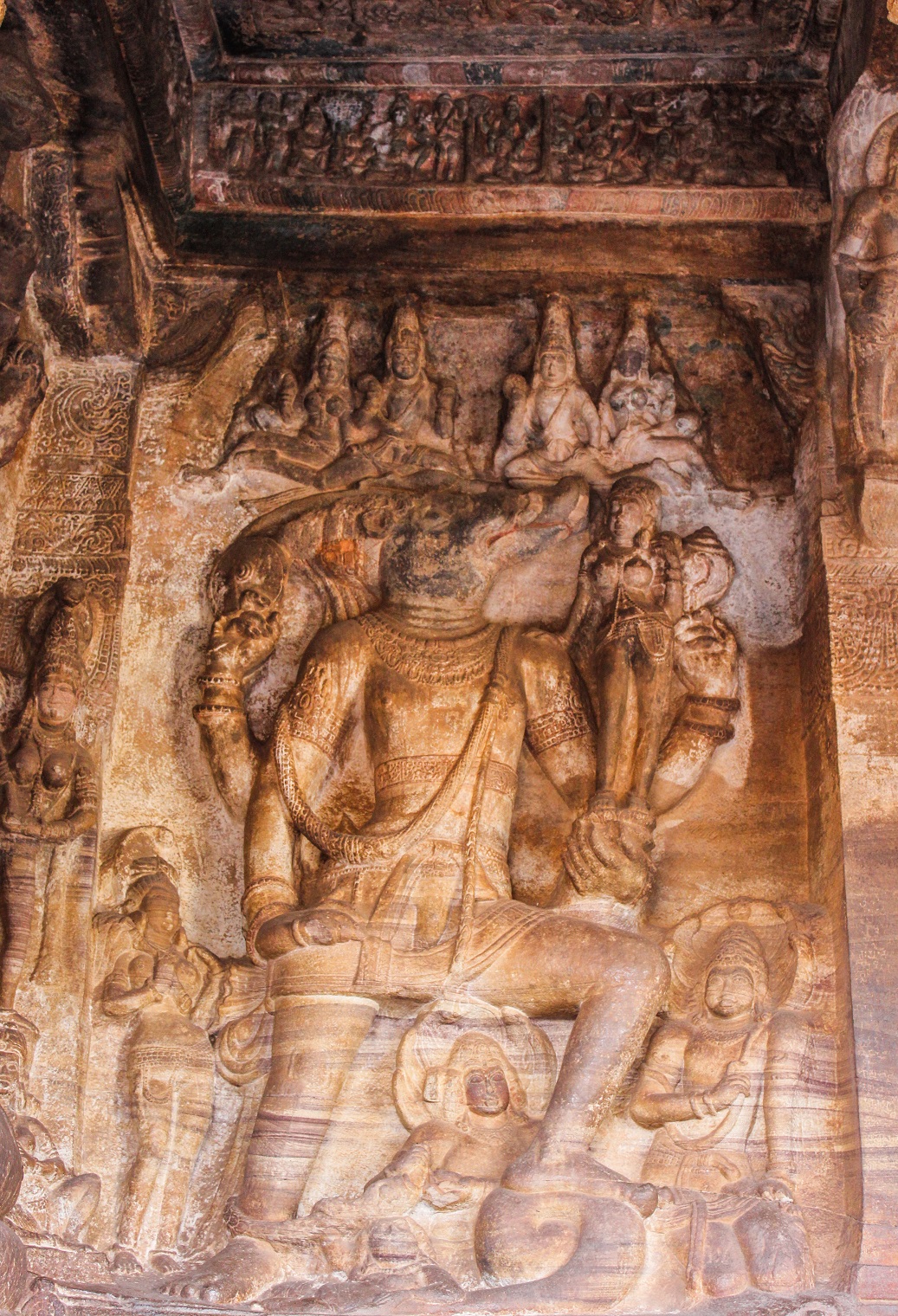
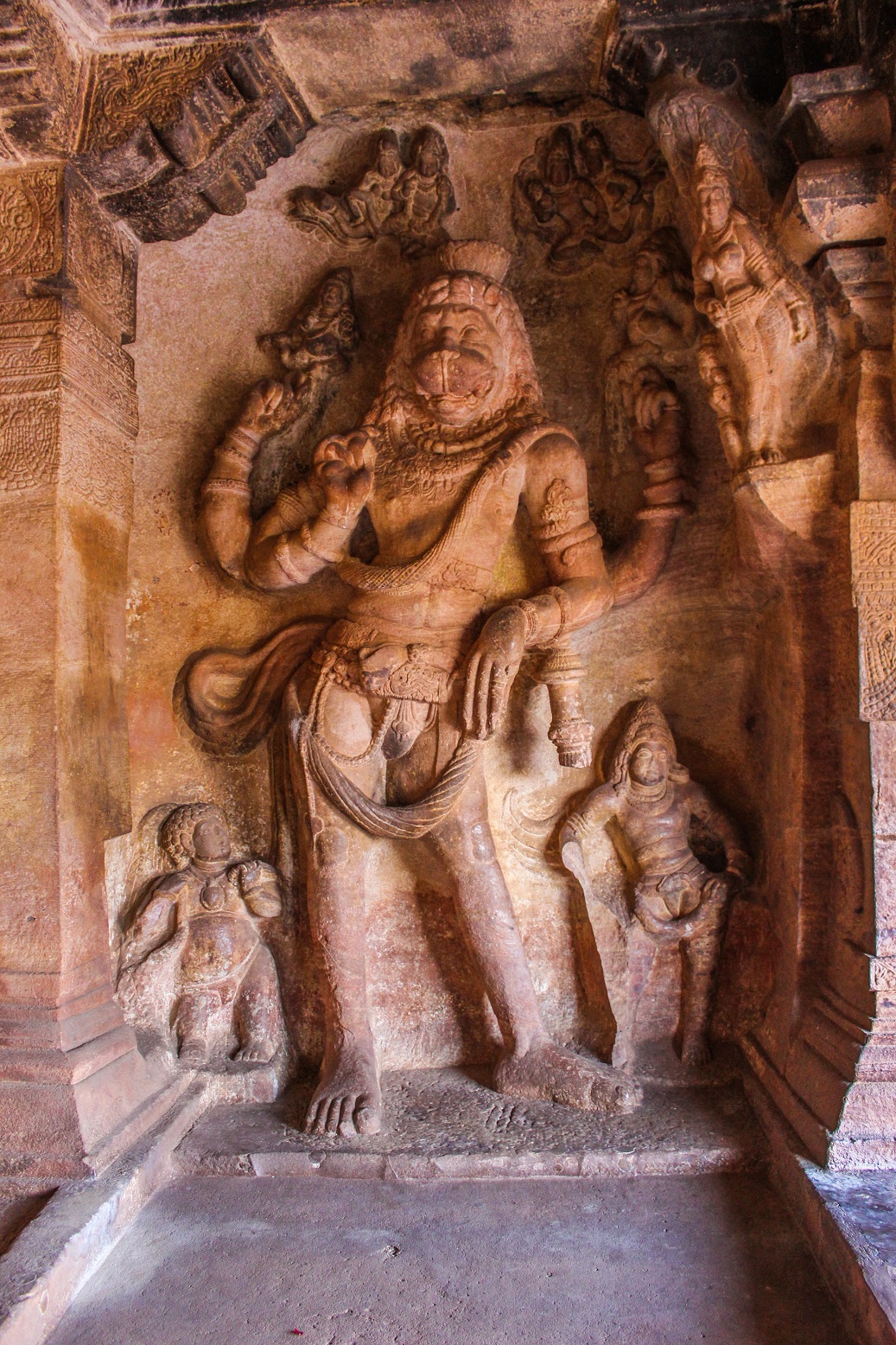
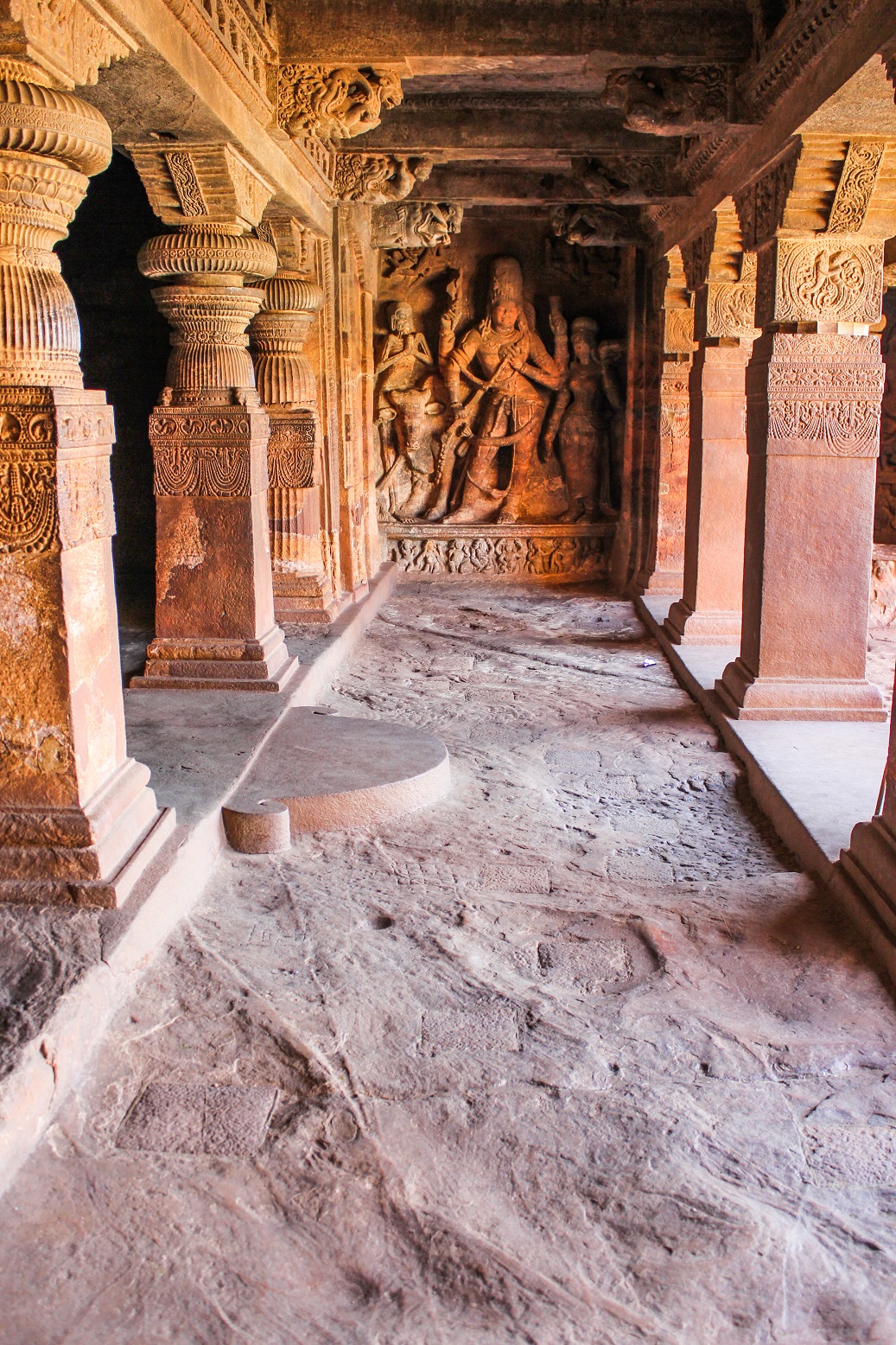
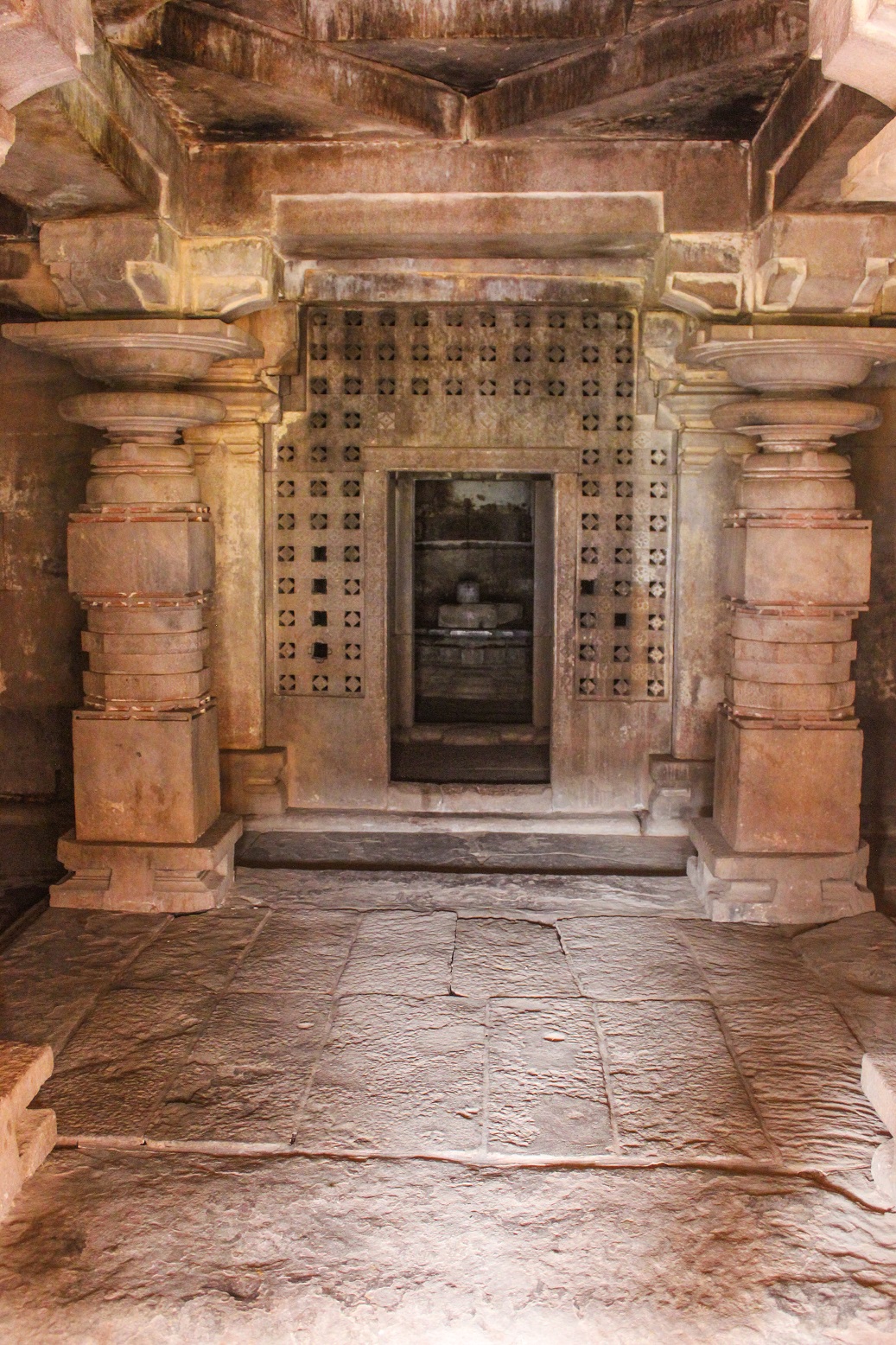
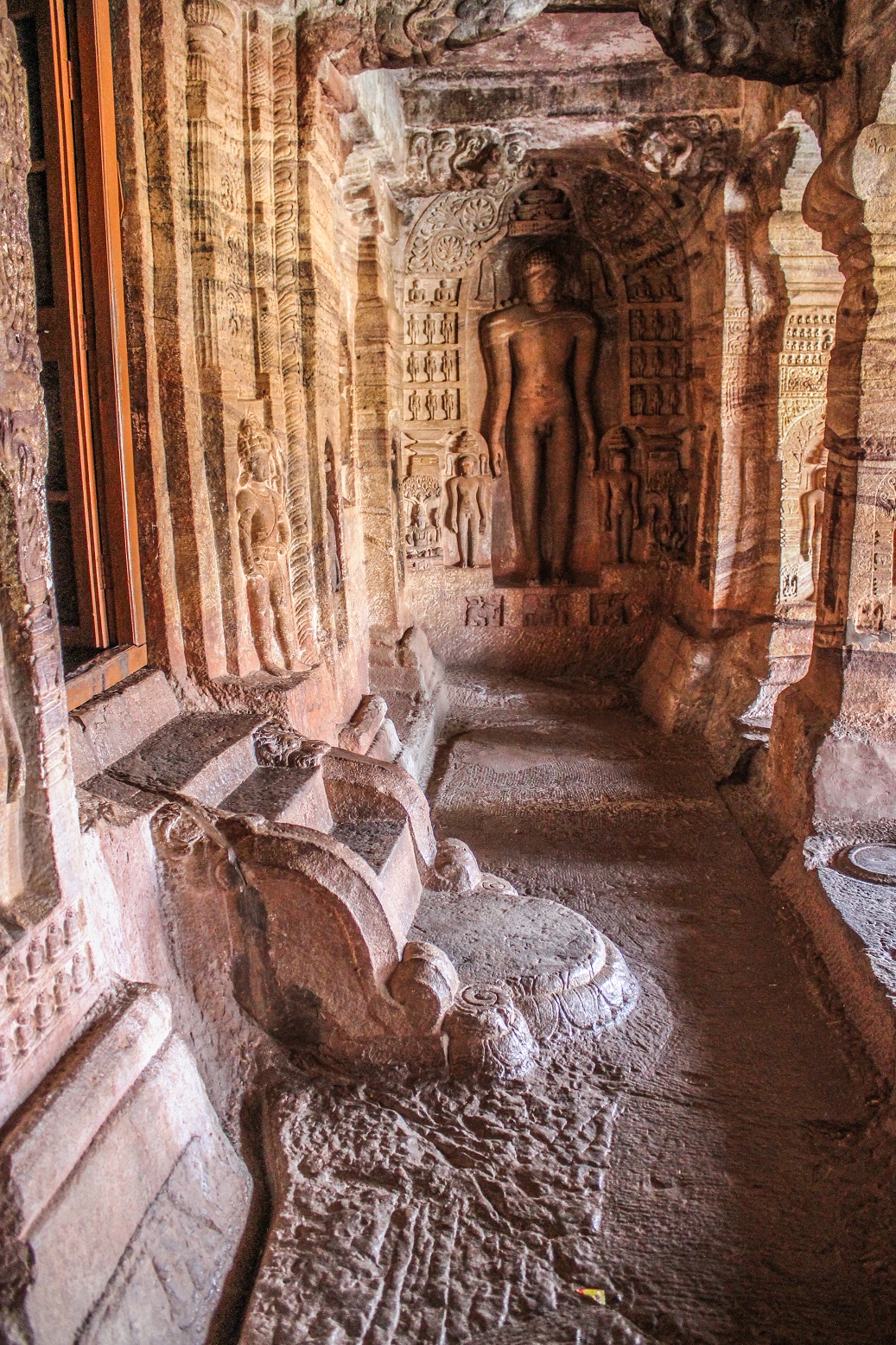
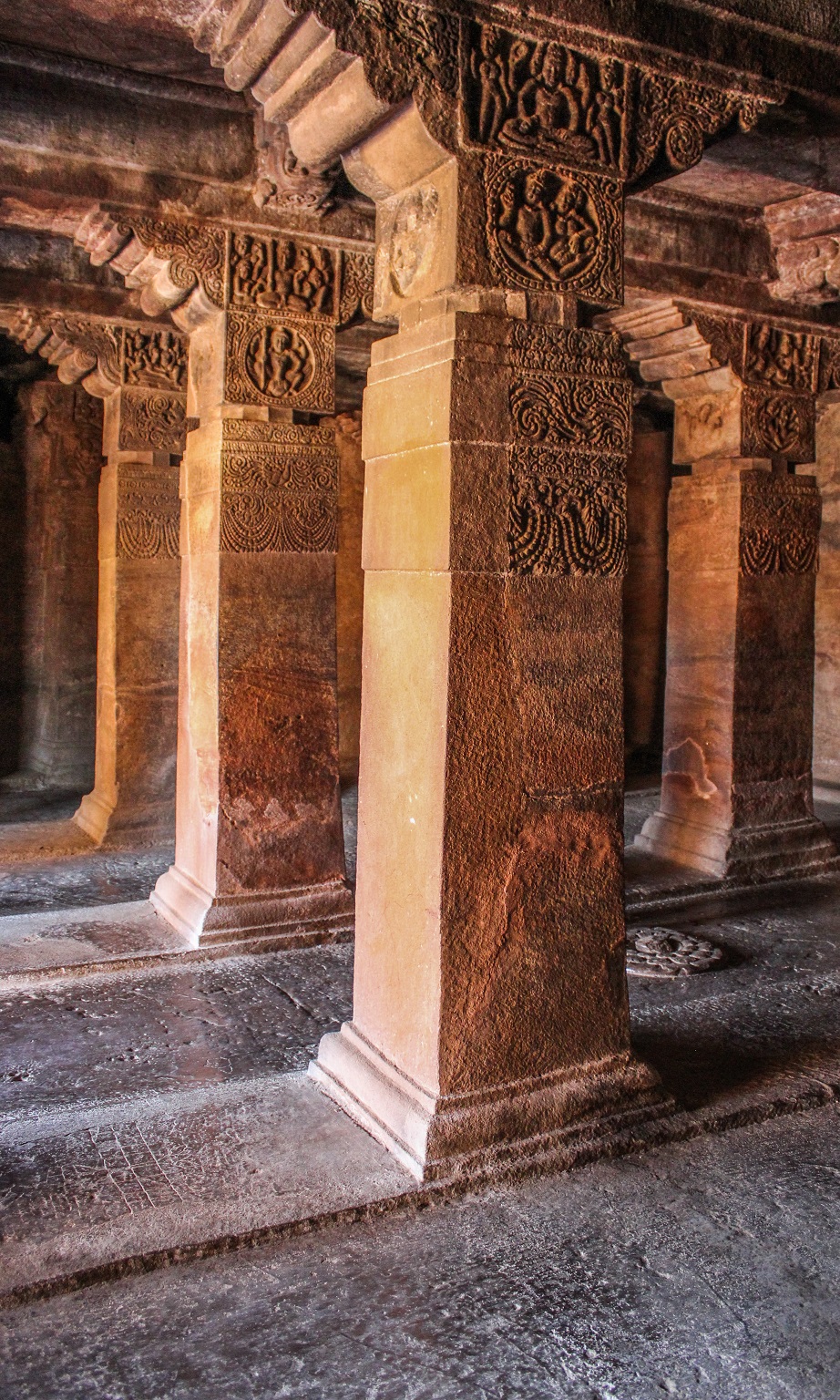
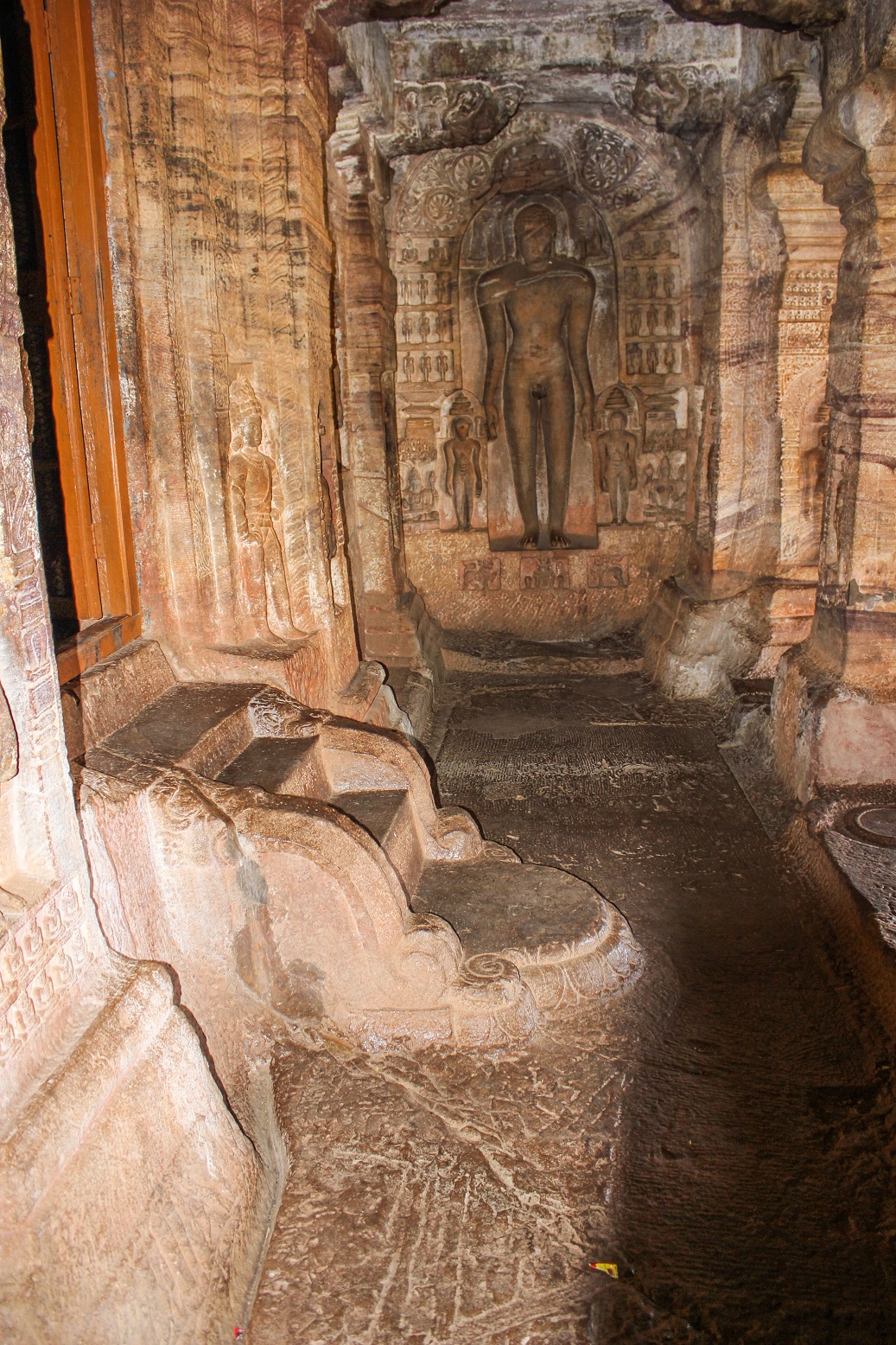
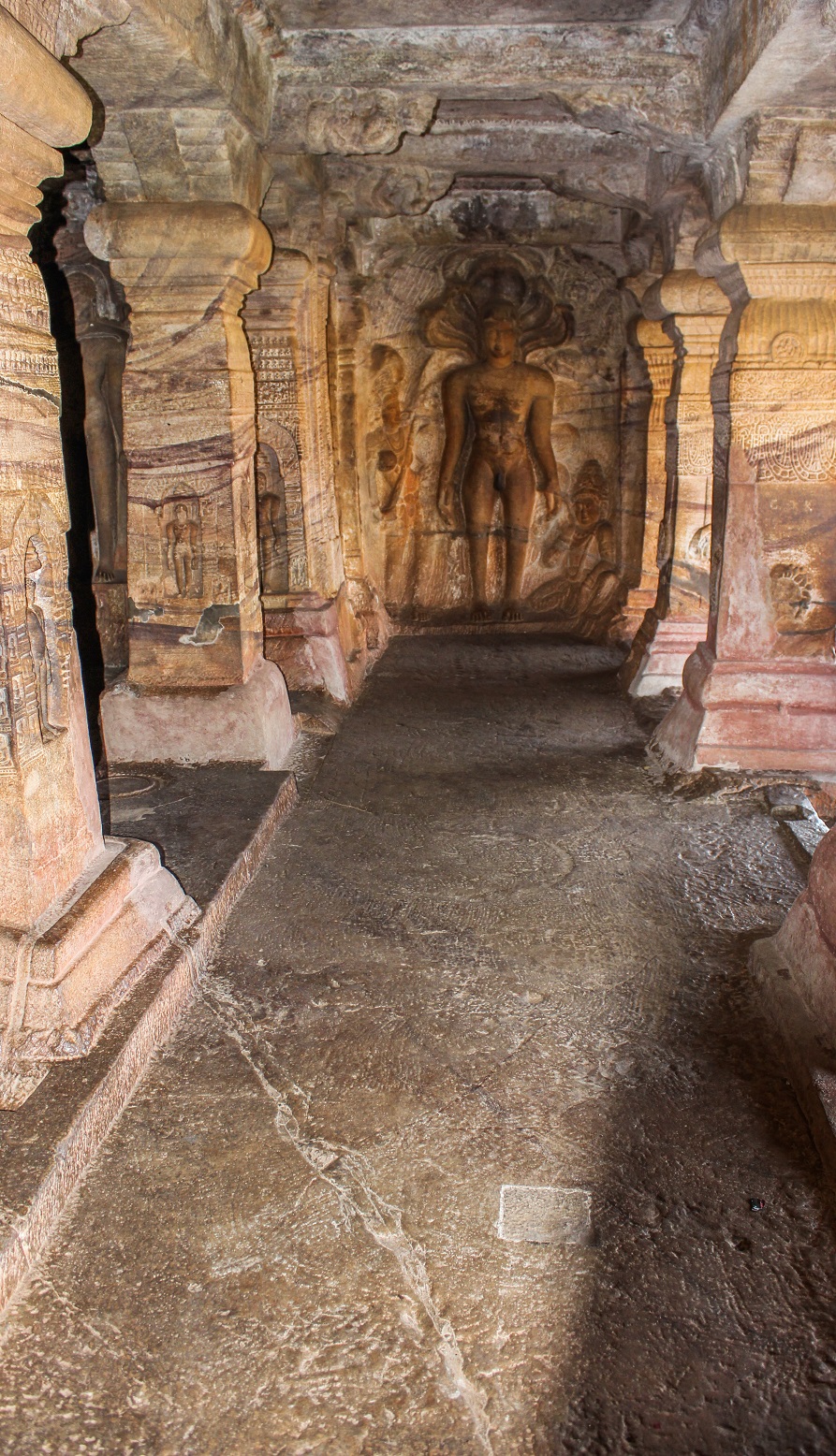
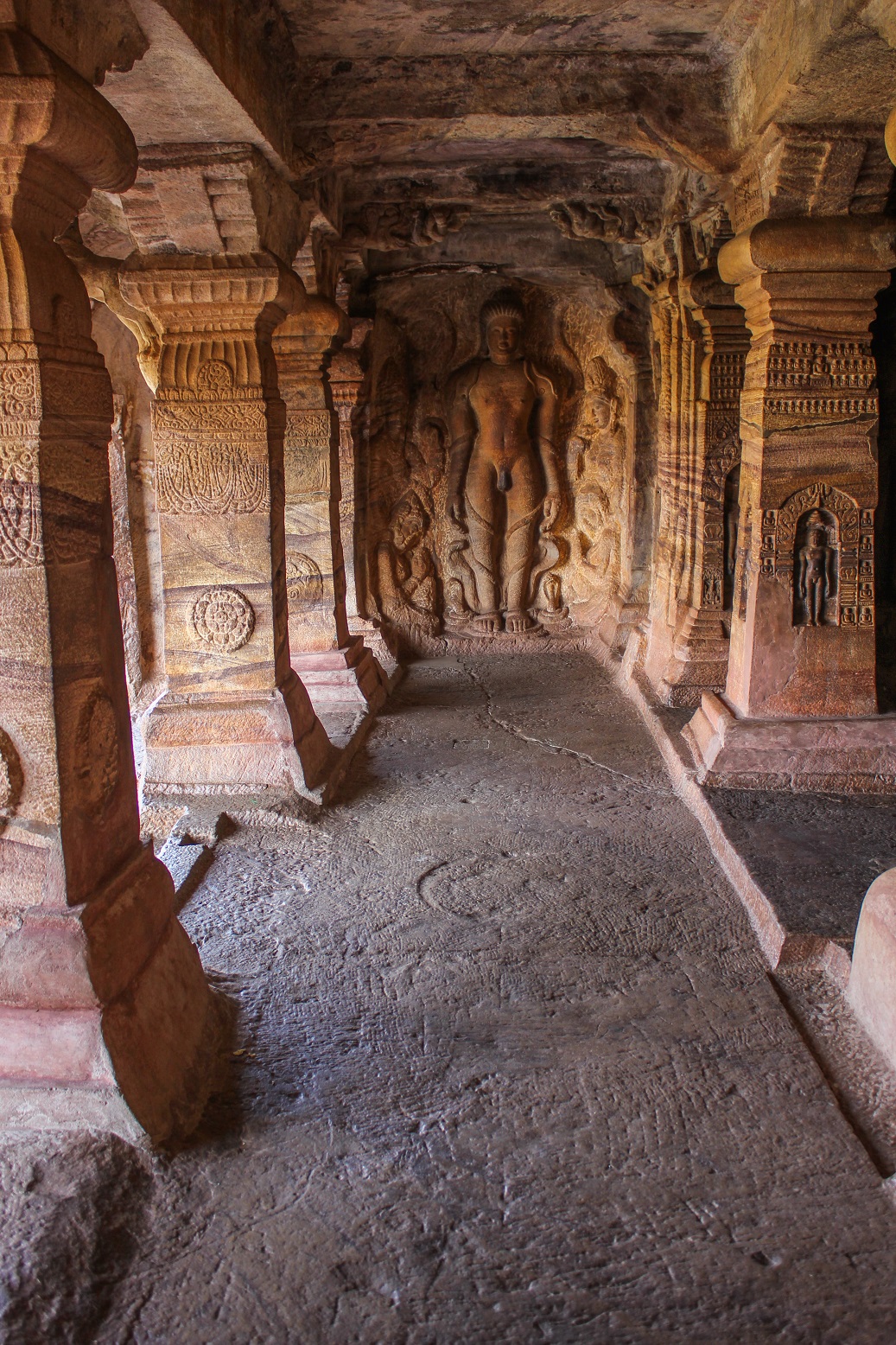
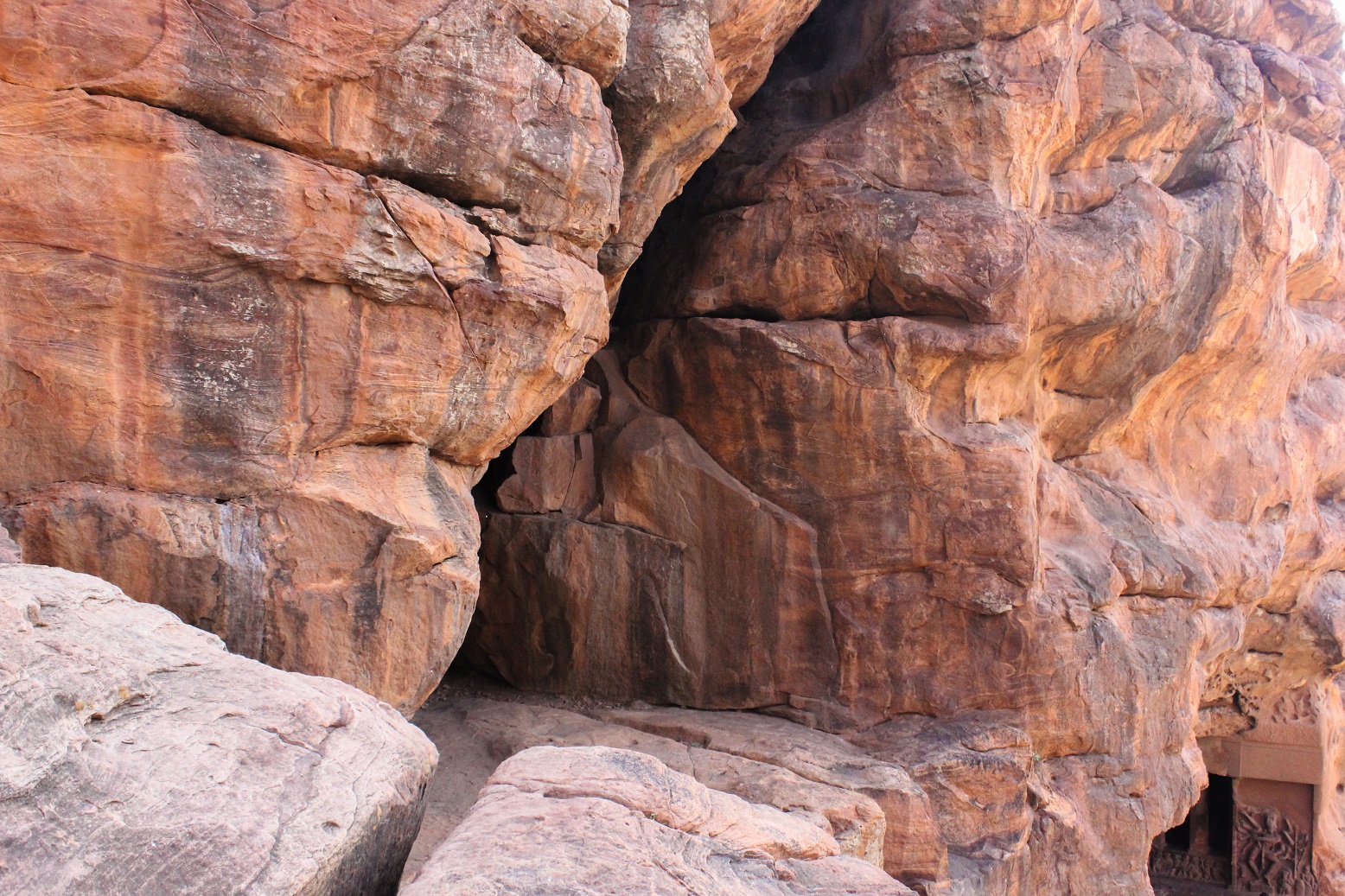
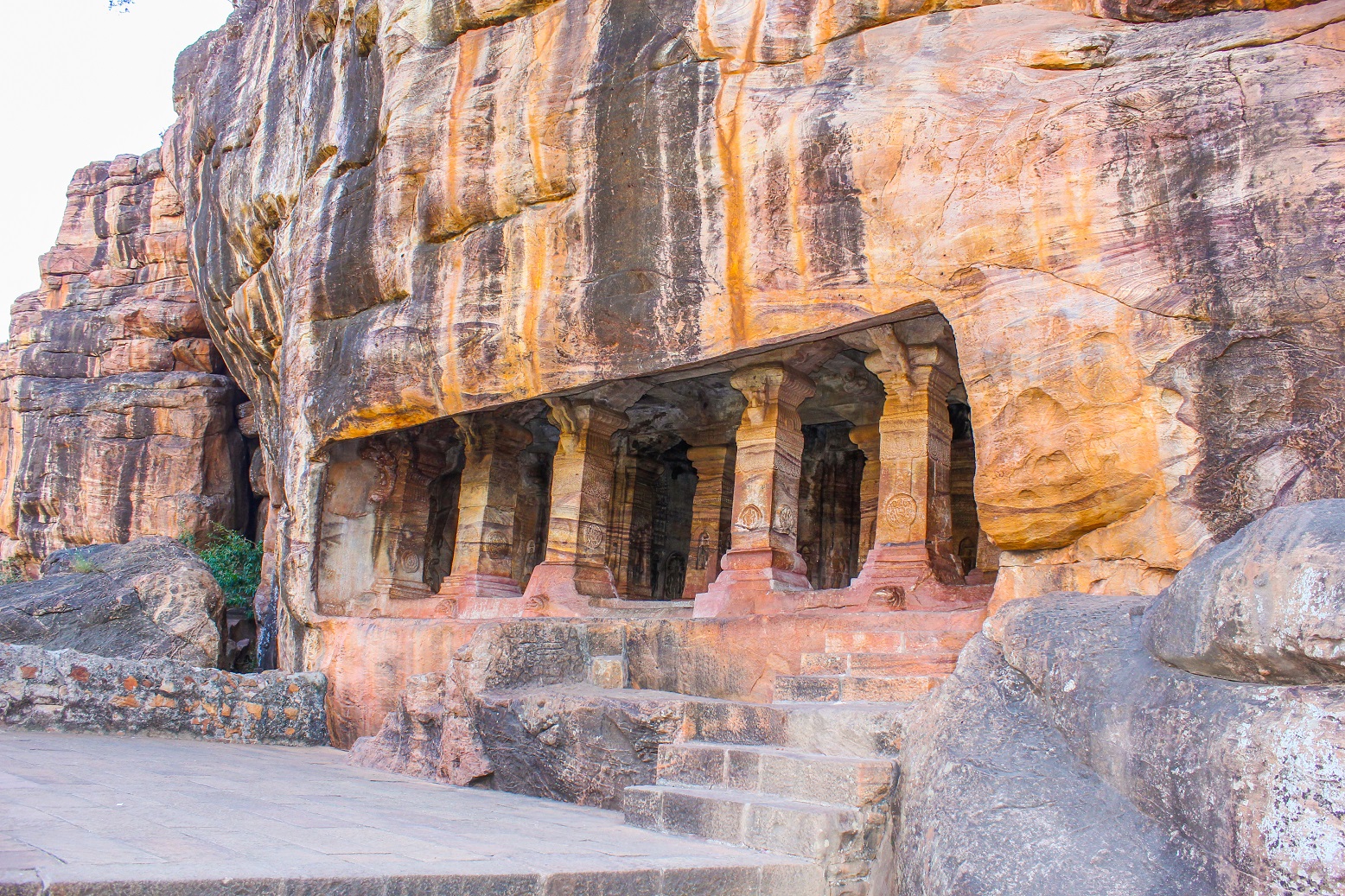
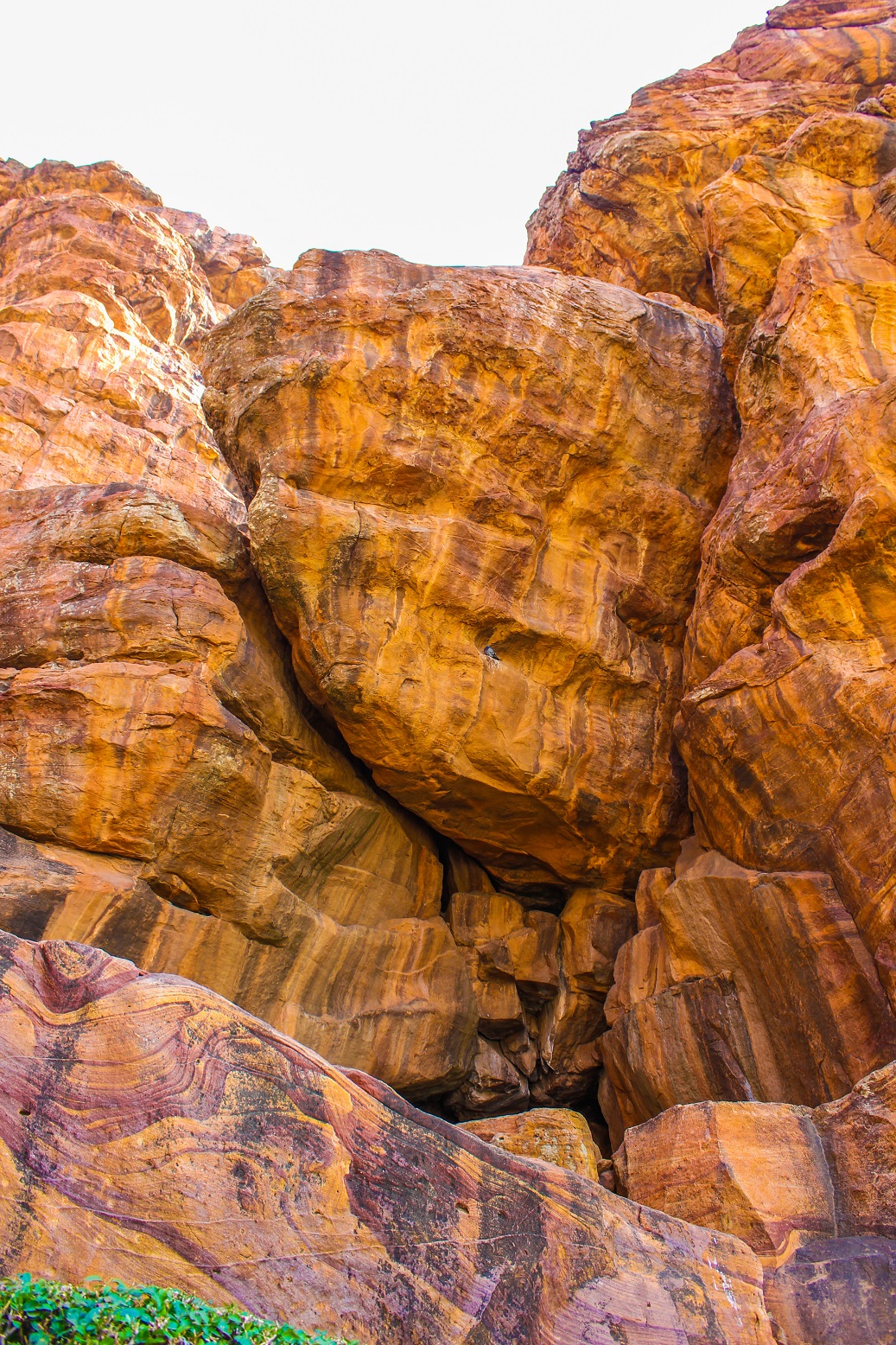
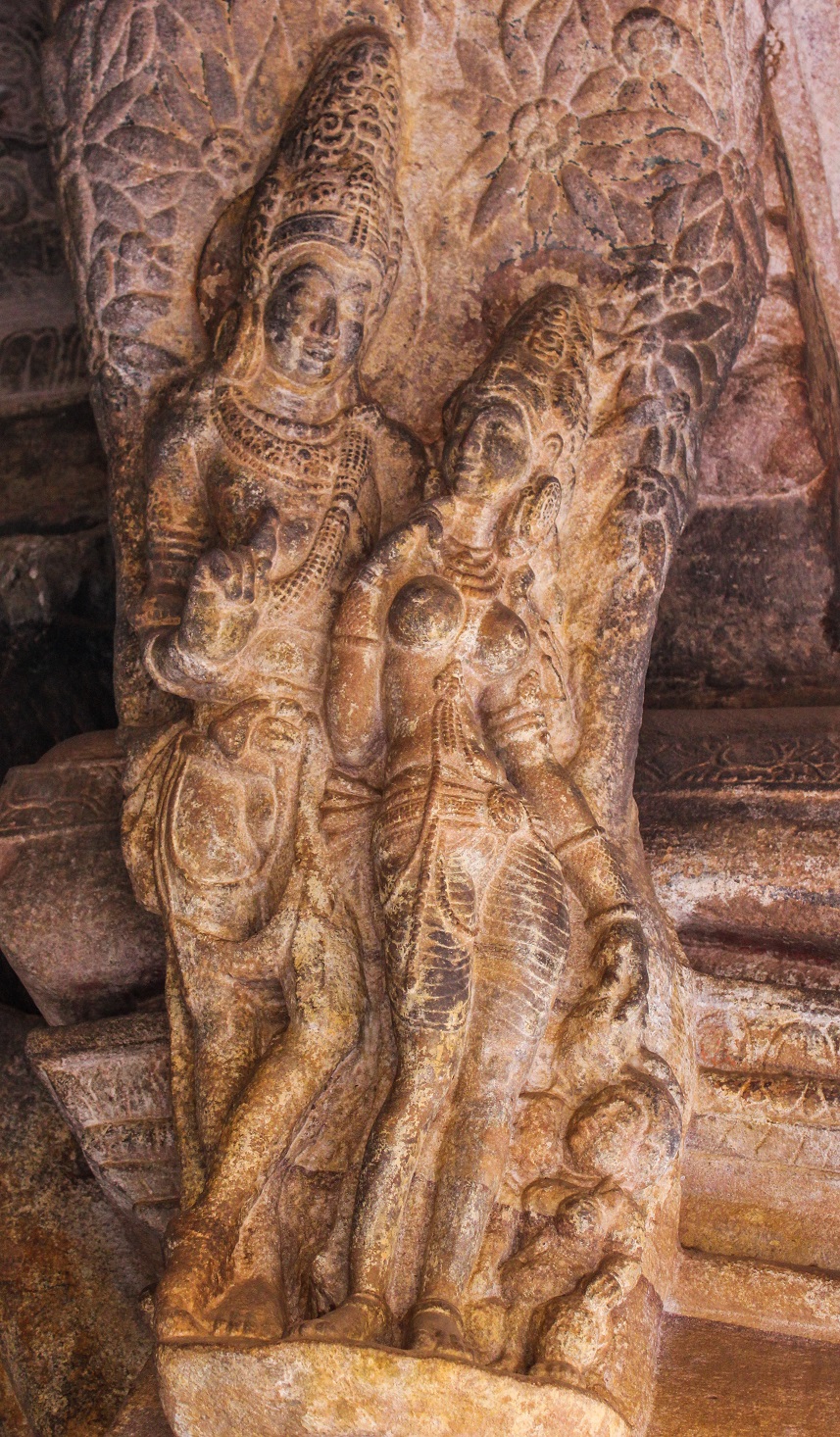
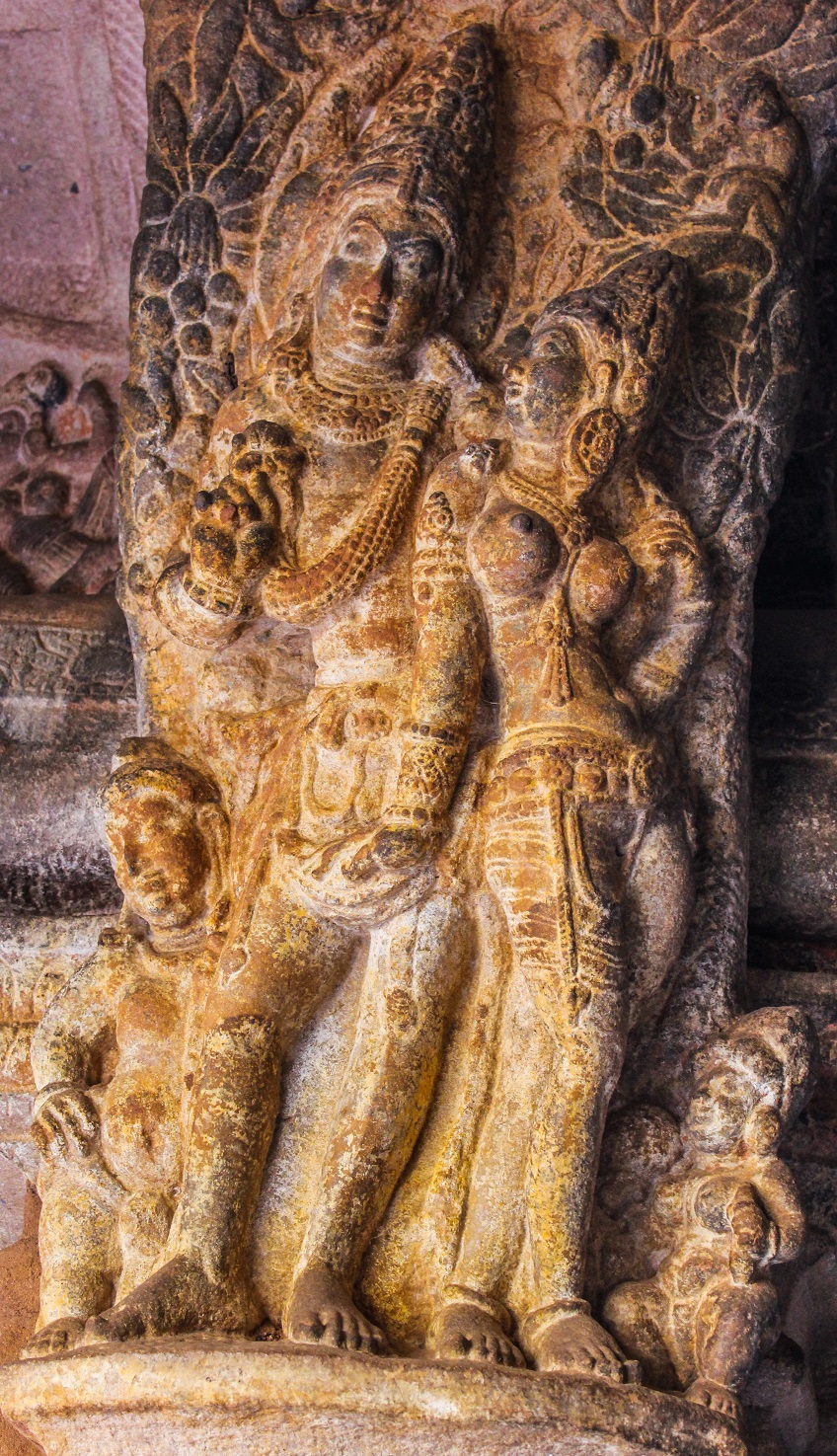
Bhutanatha Temple
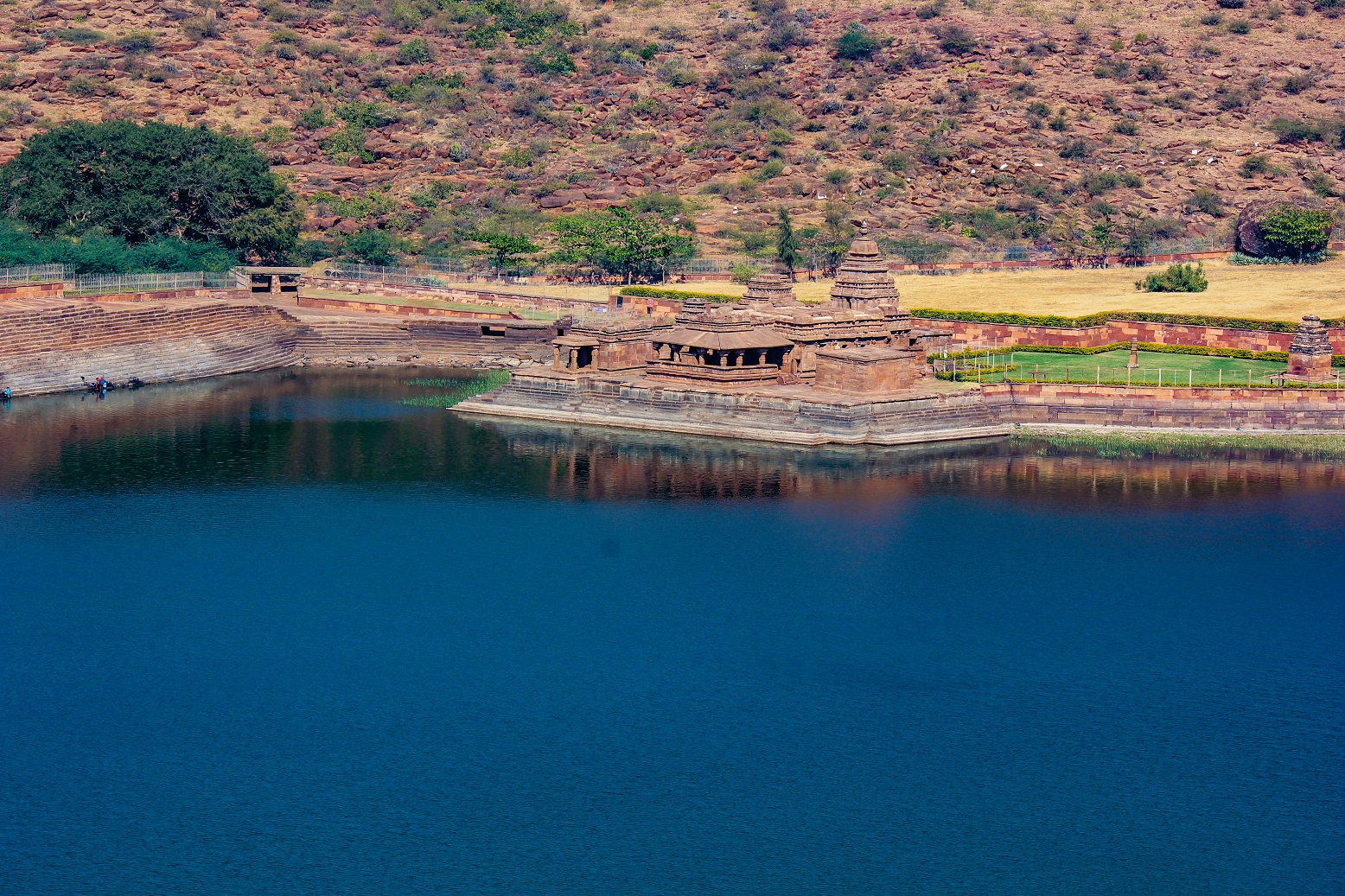
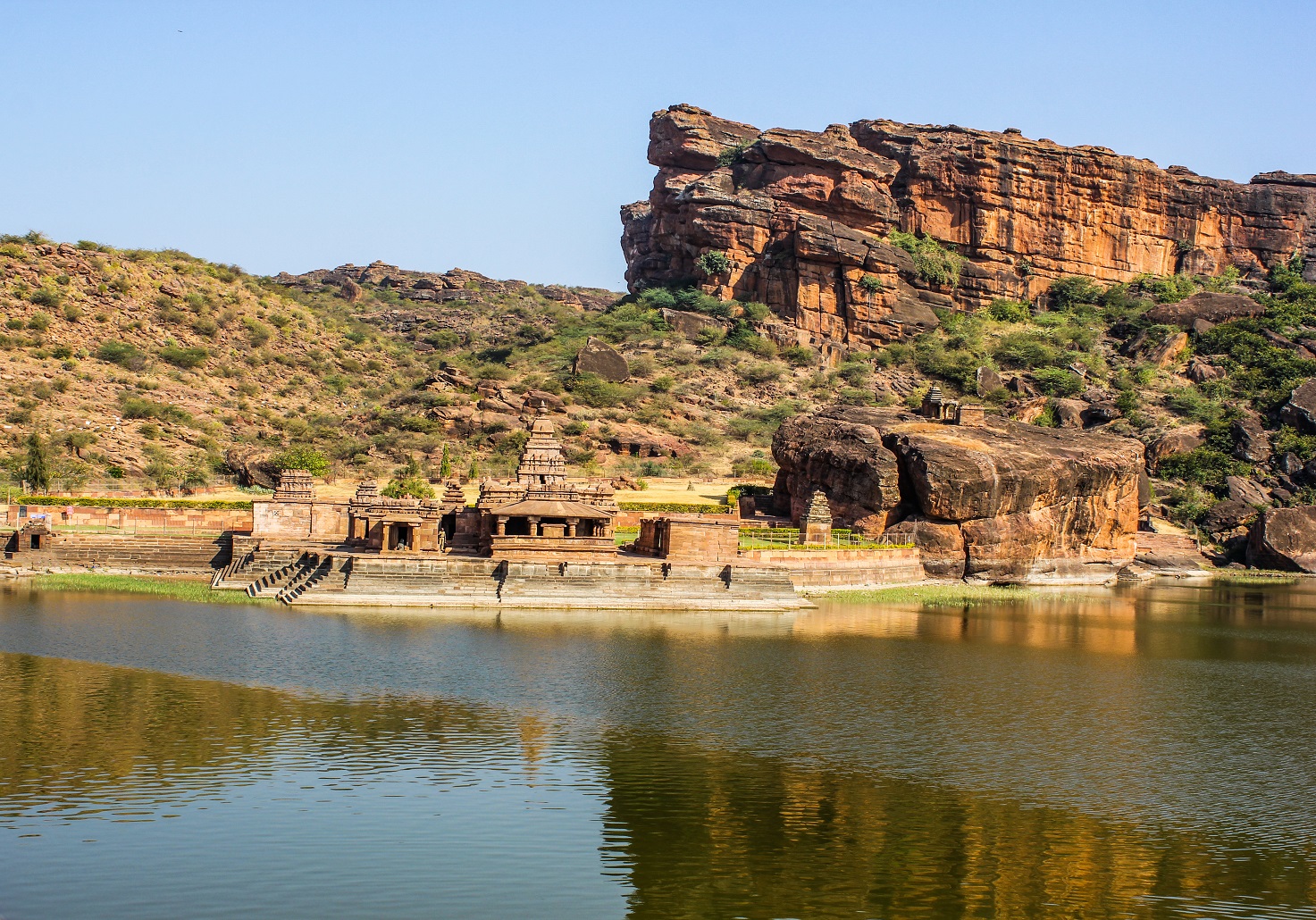
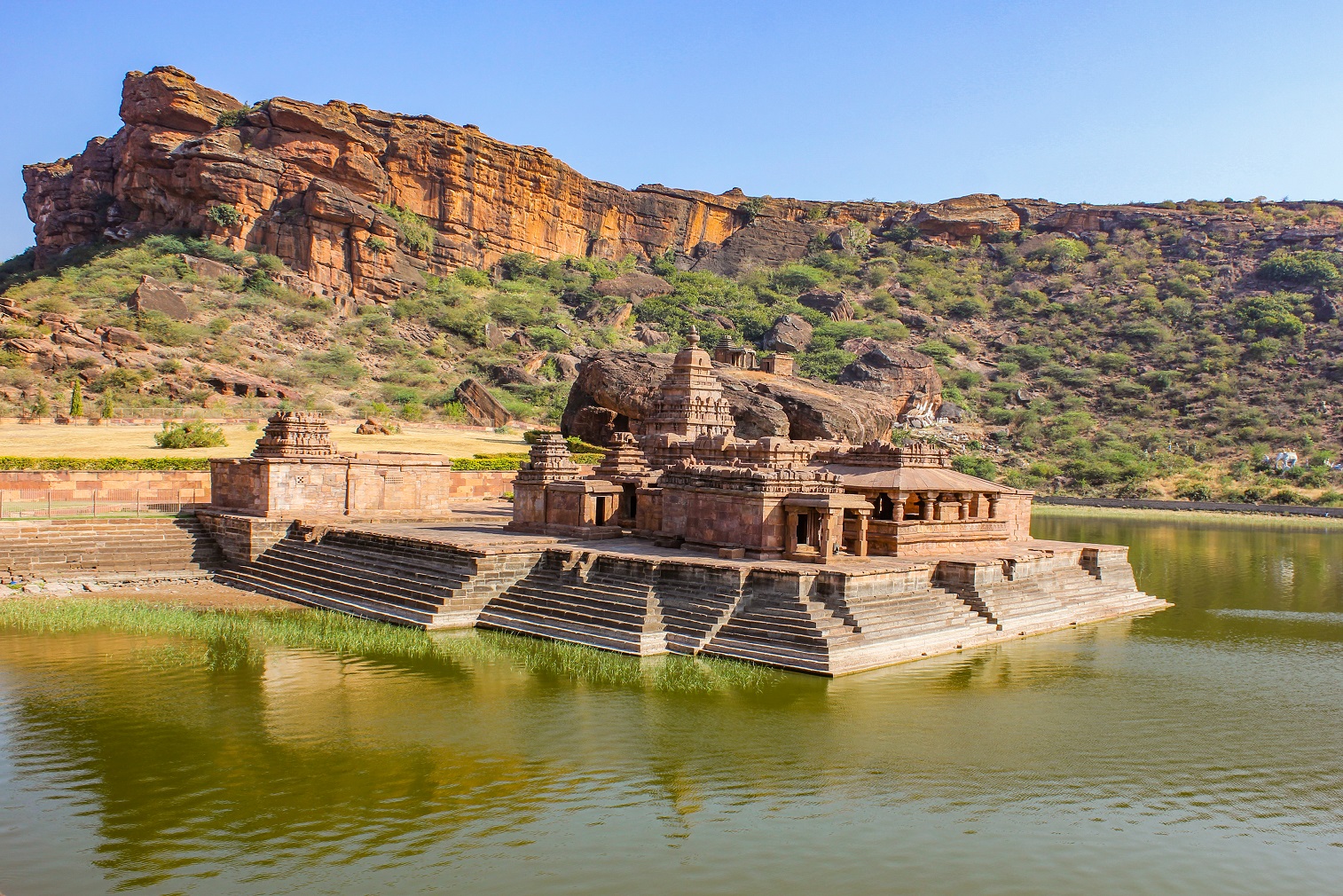
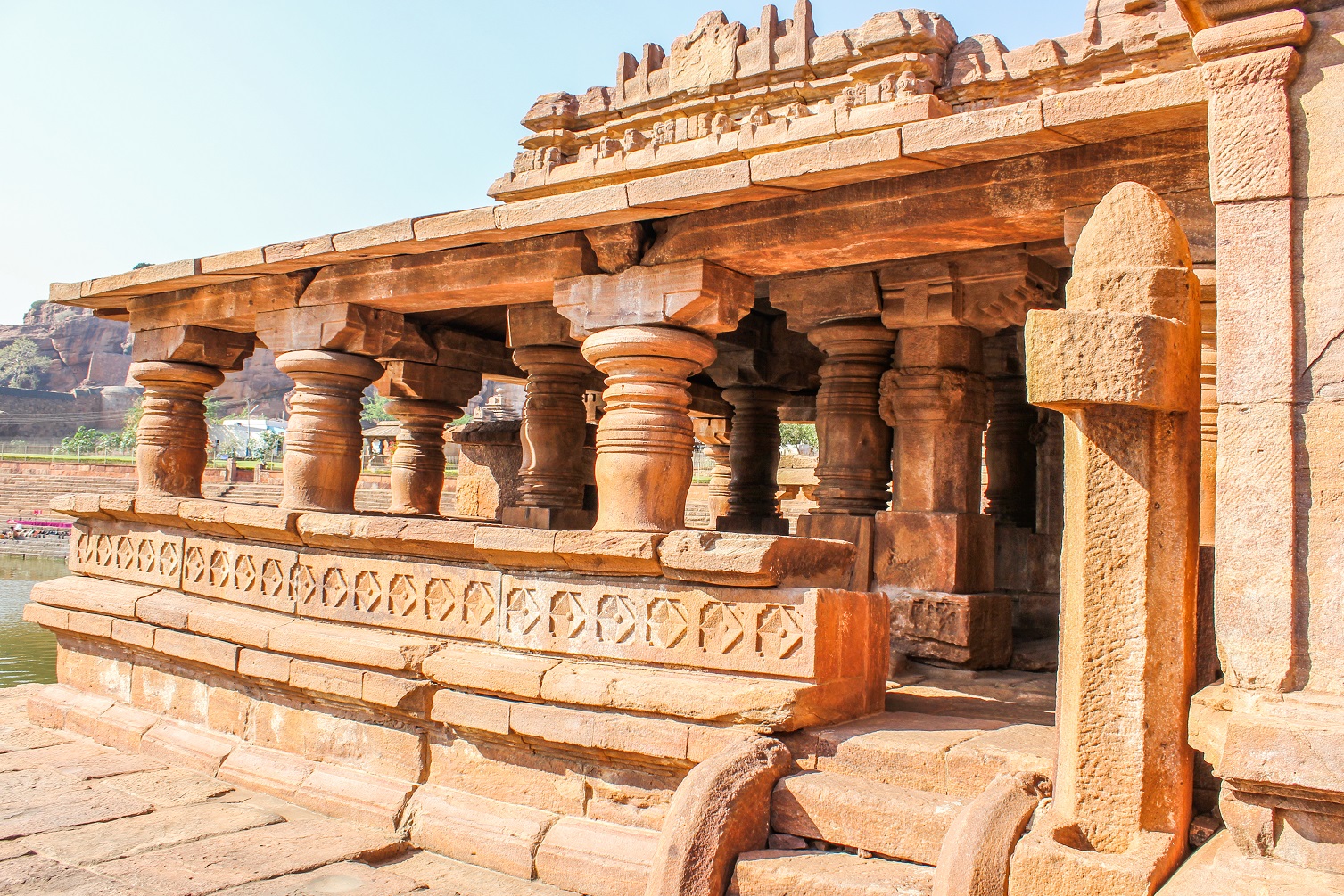
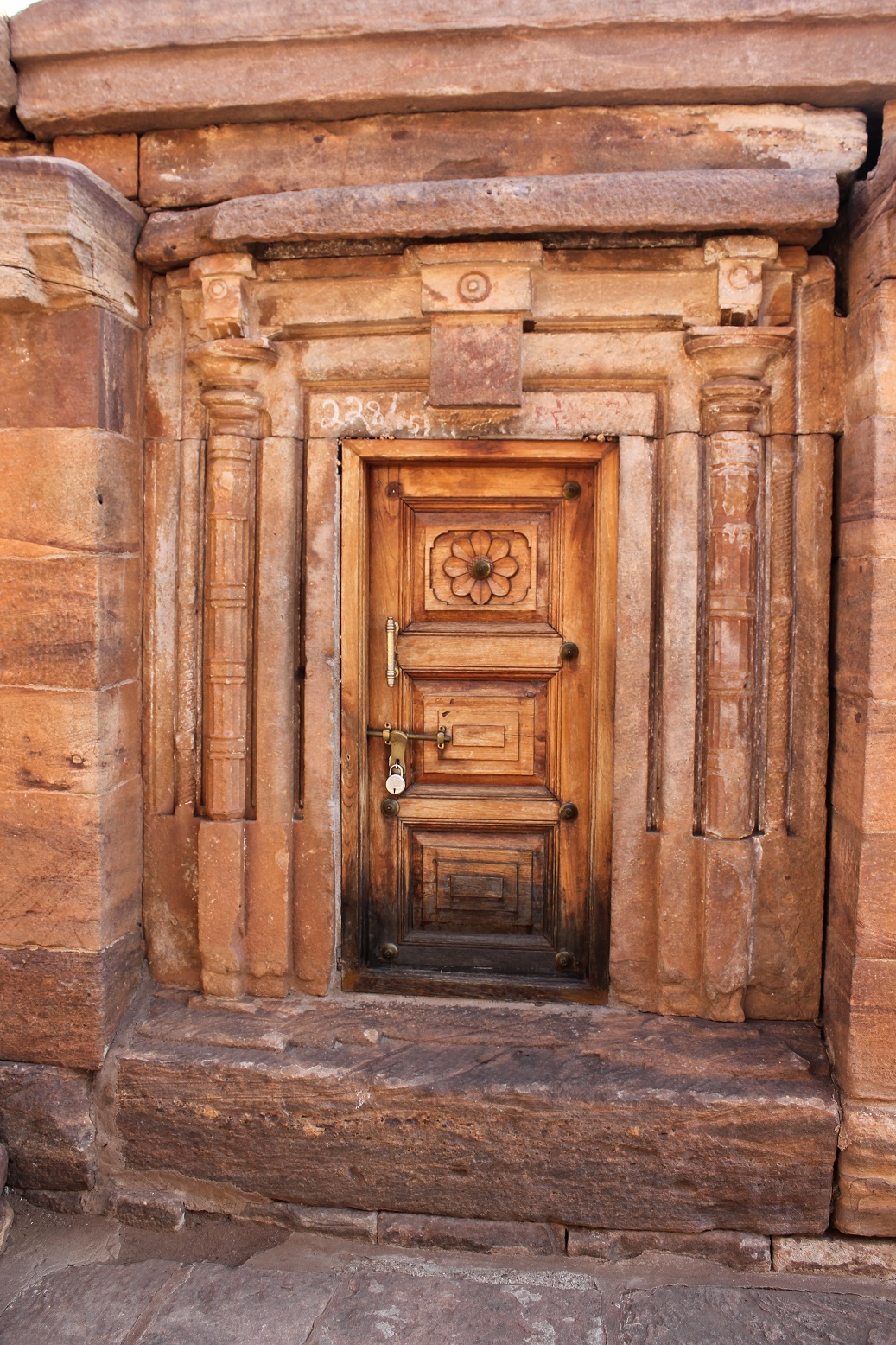
Badami Fort
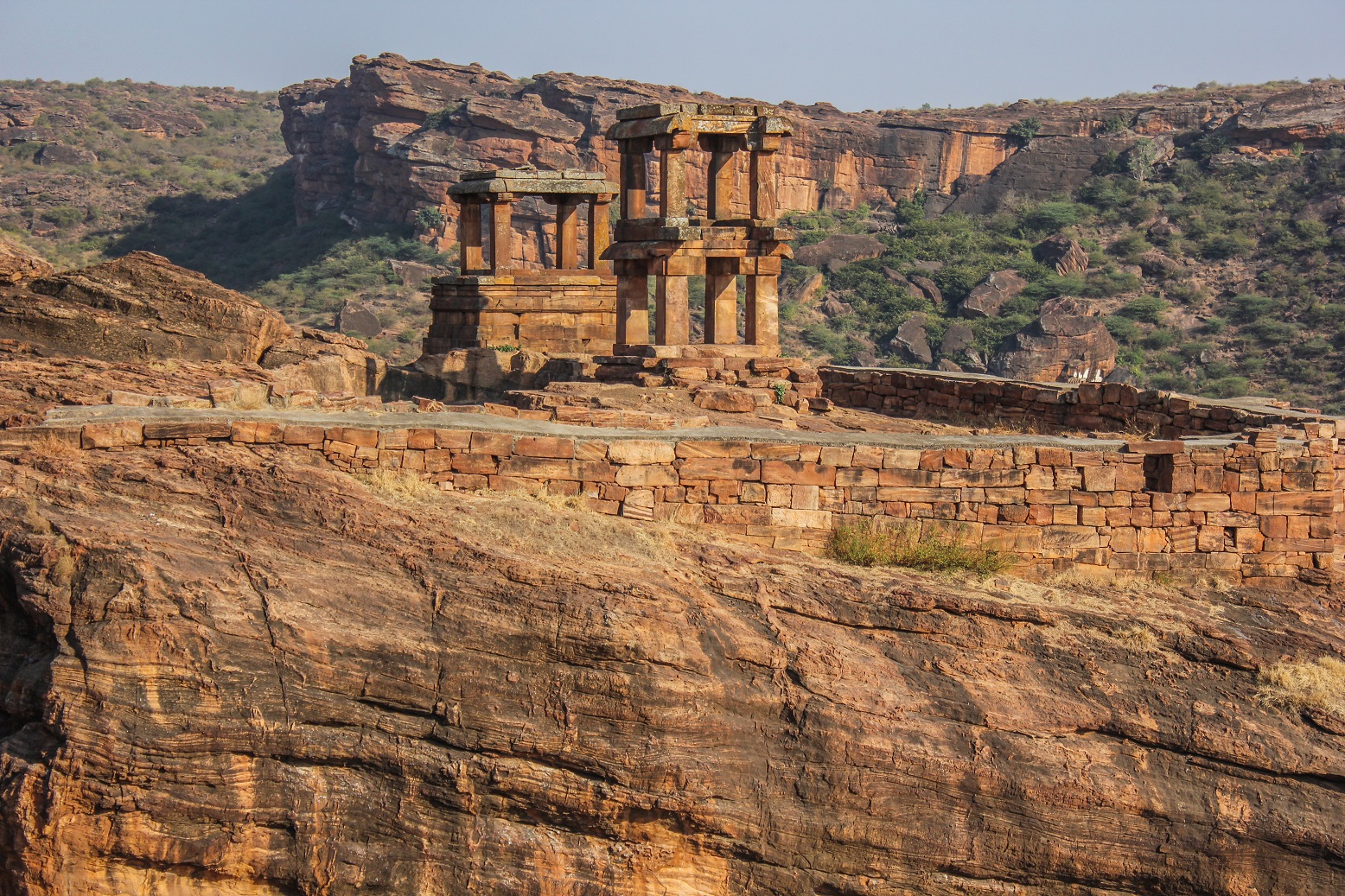
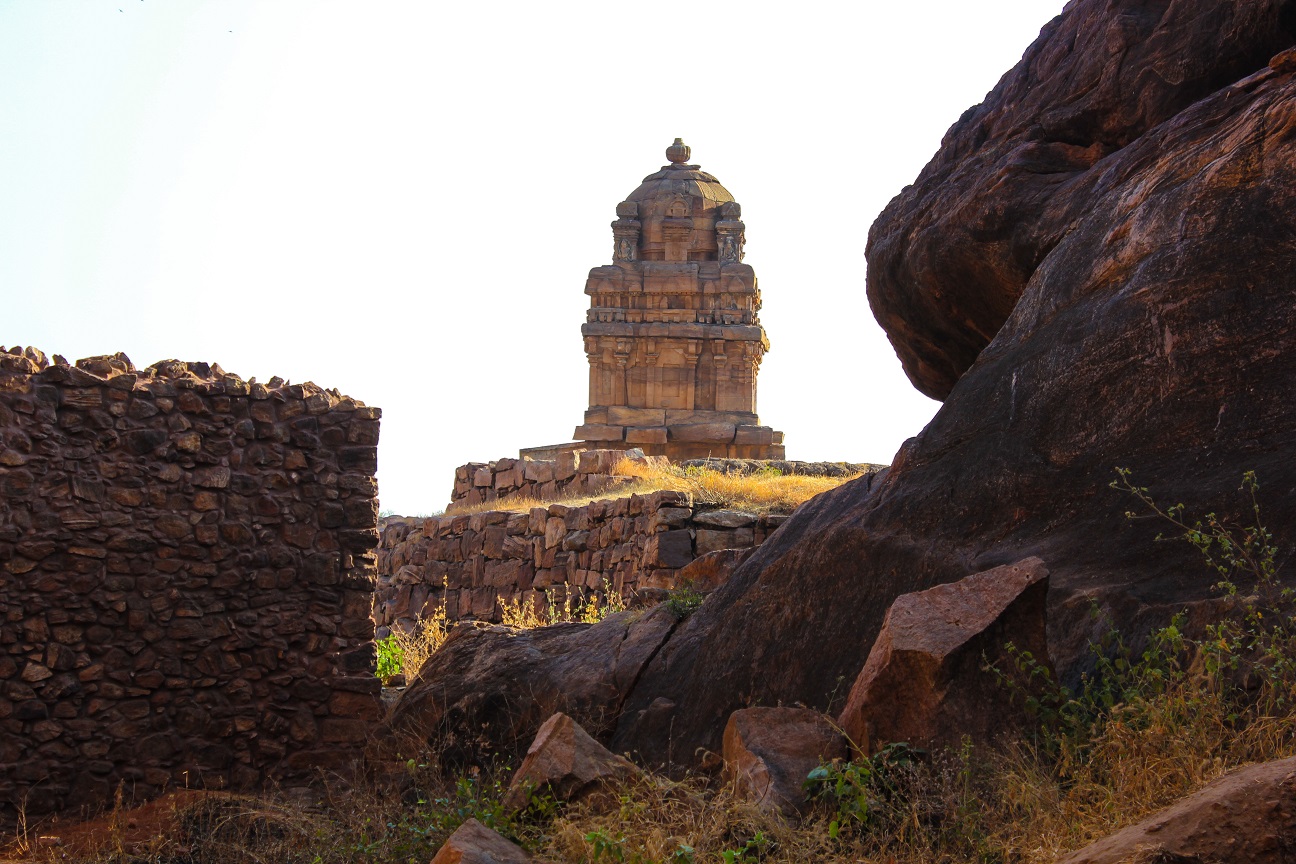
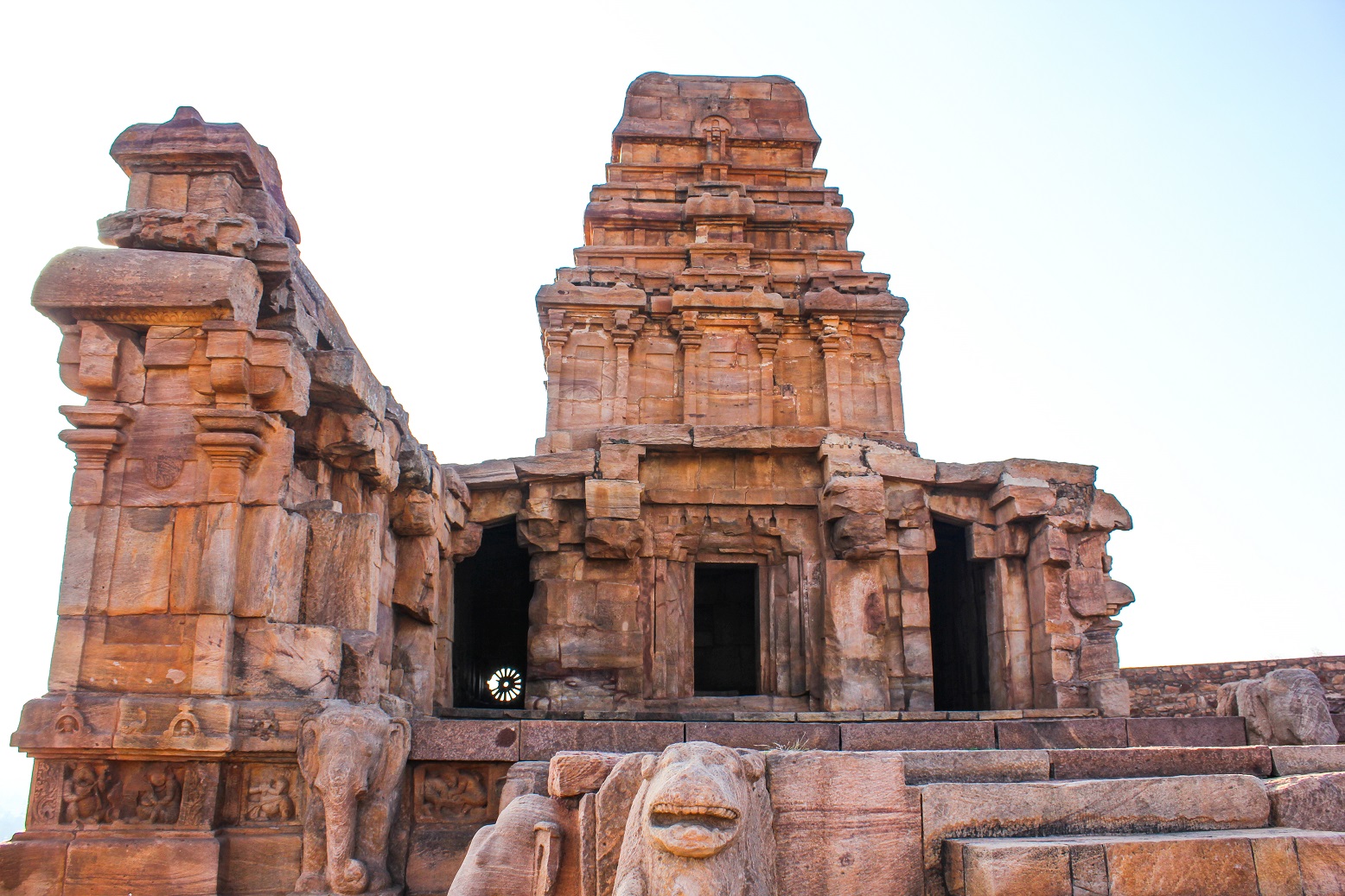
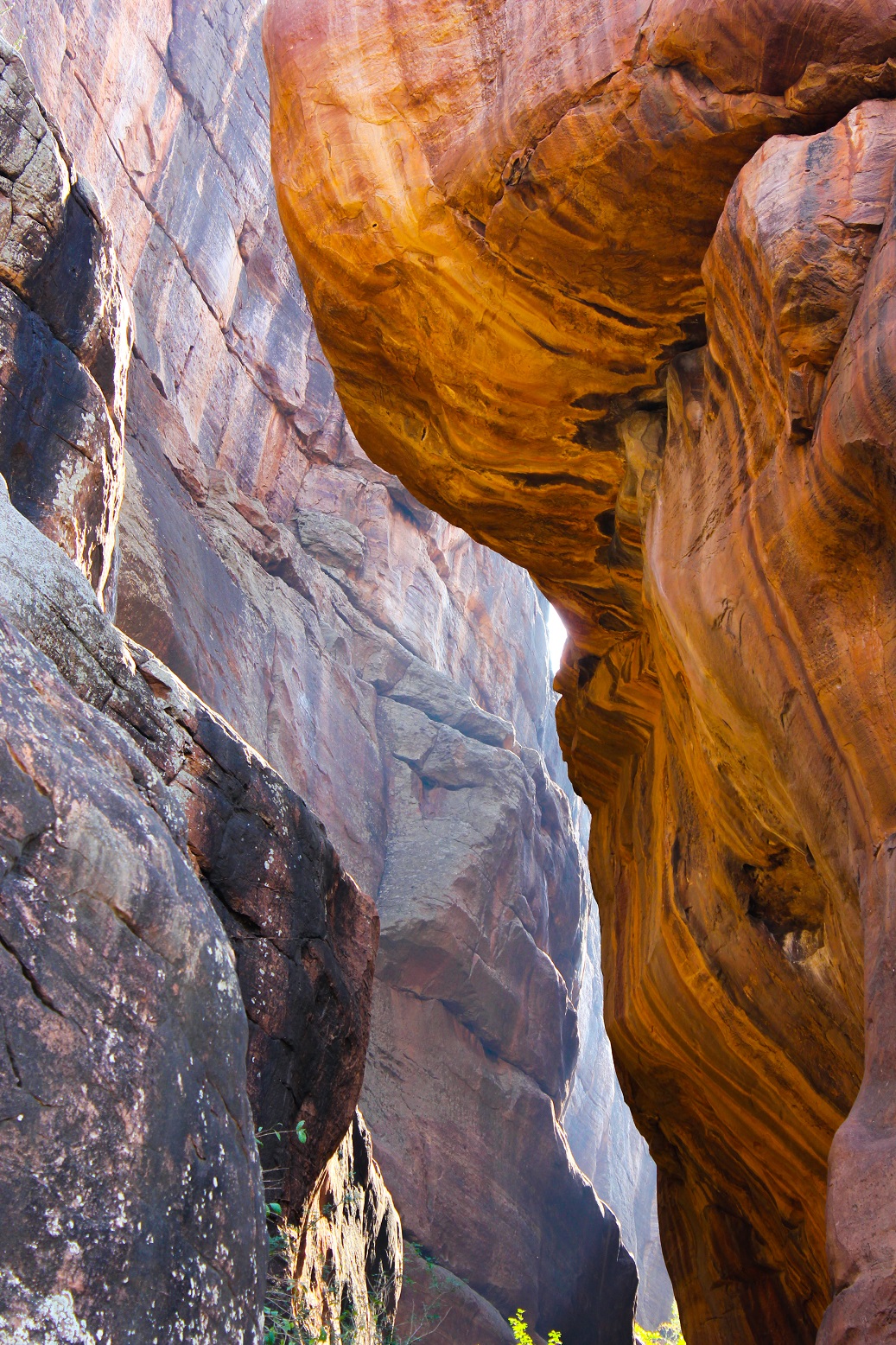
Reflections
Creation
The dawn of human species also witnessed the dawn of philosophical inquiry on this blue planet. Being a pico speck in the indeterminable universe, has not thwarted human determination in pursuit of the purpose for being or deciphering the physics governing the paranormal universe. The sculptures in the caves of Badami are a conspicuous conjecture of theory of everything conveyed artistically and whether these are mythological stories or a cue to the conundrum “creation” is a culmination of communion between the traveler and the tomb. It is contentious whether we will one day construe the grand unified theory but the undeniable veracity these sculptures exude are that of the evolving yet unpredictable nature of events in this ever expanding universe which humbly warns one that the real laws governing the universe are beyond the realm of logical reasoning in beautiful minds of humans. The tales of Lord Shiva or that of avatars of Lord Vishnu are all celebrating this mystical power of universe and it is not uncommon here to experience humility, gratitude and see the shroud of our pride and prejudice being dispelled.
So much food for thought here for the hungry apprentice and a traveler through the river lands of wisdom and the only detriment is dismissing the prudence in these arts in the name of faith or religion.
Civilization
The verbal testimony and art has been the most popular form of education historically in India. It served multiple purposes:
- it enabled exercising a human mind’s fullest potential in comprehension and memory, without being parasitic to the written records
- it enabled rendering and interpretation of wisdom that is sensitive to the times than lock it with pen and paper only to be dismissed in future as frivolous beliefs and practices of the past. It encouraged and rightfully gave liberty of interpretation of scriptures that factored the time and context of human life
- specifically art also served the purpose of channeling the creative energy of people constructively
Badami is a testimonial of quintessential ways in which Indian Civilization thrived at those times. Today we have elevated the value to written records and photographic evidences to the extent that we fail to appreciate the epistemic grounds of verbal testimony or use of art/symbols as a means of education that was the order of the day in erstwhile India. This travel is worth reviving a second thought if it was worth bereaving ourselves with profound knowledge from the heritage of India, the home to oldest civilization, due to our short sighted value we give for methods of education used today.
Conjugal Love
Have we wondered how erotic arts found a place in the Temples of India? Today such arts would be curbed by the censor board governing medium of artistic exhibition in India. Why? When and how did we lose these liberal values ?
The mythological tales of India have always celebrated the power of feminine. The gods who represent creation, preservation and destruction viz Brahma, Vishnu and Shiva are complimented by the goddess who represent knowledge(needed for creation), material wealth(needed for preservation) and strength(needed for destruction) viz Saraswati, Lakshmi and Shakti. Masculine and feminine were valued equally as the very metaphysics of gender articulated in Upanishads state that masculine and feminine originated from the “one” that was split into “two” equal halves leaving a magnetic force nurtured by the universe between them to come together in order to perpetuate life.
Given that humans are gifted with consciousness, any act that an animal would do enslaved to instincts, can be conducted by humans aesthetically. The evolution of fine dining, home decor and erotica are all a reflection of human consciousness in the ability to conduct animal acts in aesthetic way.
The sublime force that brings a man and woman together to perpetuate human species is divine as its inherent to the design of universe and hence it always found a place in Temples of India. In fact the Temples of India used art to educate on aesthetics, role and the art of seduction in the conjugal love between a man and woman
The unfortunate events of Muslim invasion and Colonial rule destroyed beyond repair the liberal values that once thrived on this opulent land. Travels are hence a pilgrimage to reflect and renounce the evils we have impaired our minds and revive our culture of equality in masculine and feminine.
Get Badami into your travel investment plan right way and it is one to reap exponentially in experience.
